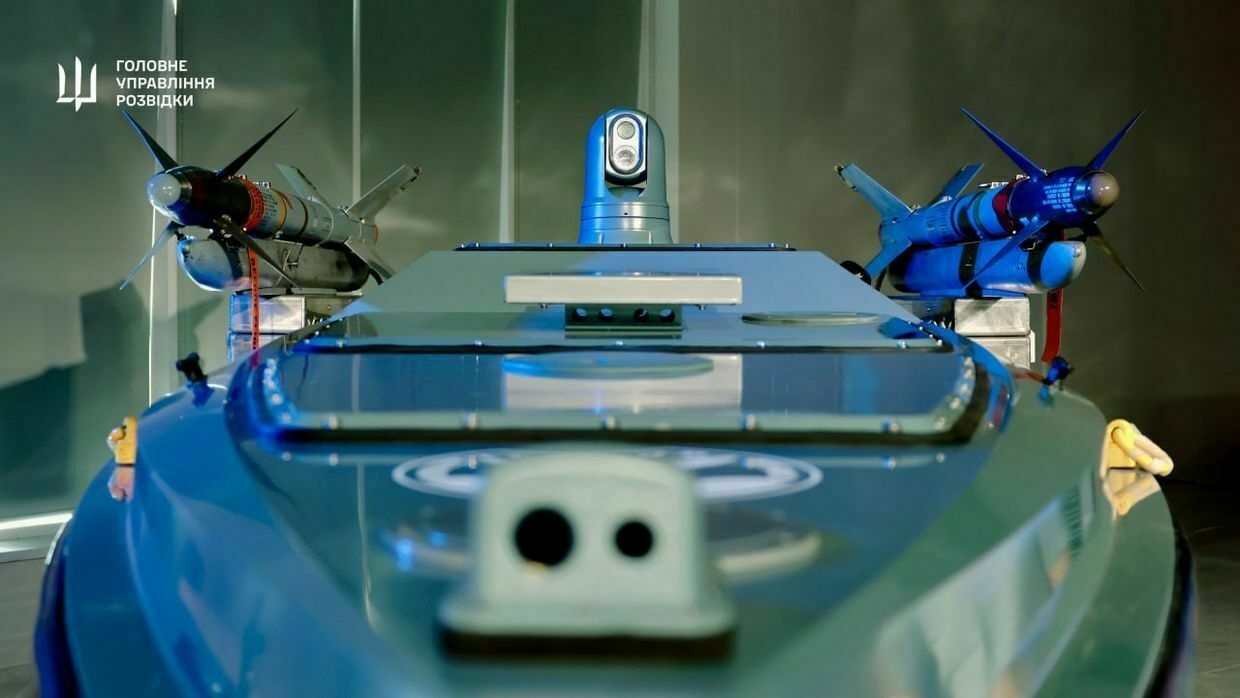-
Porn decriminalization petition in Ukraine reaches 25,000 signatures, forcing Zelensky response

Ukrainian President Zelensky must consider a petition to decriminalize pornography after it reached the required 25,000 signatures, according to data on the official Ukrainian government petitions website.
Pornography production and distribution are illegal in Ukraine, with broad interpretations meaning even sharing nude photos can result in jail time.
Despite being illegal, models on subscription-based site OnlyFans, known for being an adult content platform, must declare their income and pay taxes, as required for all paid content creators.
The decriminalization petition was created by Ukrainian OnlyFans model Svetlana Dvornikova, who argued that “law enforcement should focus on real crimes instead of conducting operations to buy intimate photos."
“Over five years, I’ve paid more than Hr 40 million ($958,062) in taxes to the state,” Dvornikova wrote in the petition.
“But instead of gratitude for this money, the state opened a criminal case against me."
In January 2025, Ukraine’s OnlyFans content creators declared more than $7 million in income, paying $1.5 million in personal income and military taxes, though it’s unclear what specific content these users create on the platform.
Ukrainian MP Yaroslav Zhelezniak, who has initiated bills to legalize pornography, calculated that from 2020 to 2022, 5,000 Ukrainians earned $123 million on OnlyFans.
“Porn today is mostly online platforms, and those who earn on these platforms officially pay taxes. That’s millions of dollars going to the armed forces,” Zhelezniak said on his YouTube channel.
The latest bill to legalize pornography was registered in November 2024 and supported by parliament’s law enforcement committee in December, but hasn’t been brought to a vote yet.
The bill proposes decriminalizing only the creation and storage of pornographic content by consenting adults.
Criminal liability would still apply for revenge porn, deepfake porn, extreme porn, child pornography, and distribution to minors.
“We’re simply changing Article 301 of the Criminal Code so that adults who film and distribute intimate videos aren’t thrown in prison for 3-5 years,” Zhelezniak wrote on his Telegram channel.
“Currently, under Article 301, you can be punished even for storing nude photos on your personal phone."
In July 2022, a similar petition to legalize pornography reached the required number of signatures. It didn’t lead to changes, and Zelensky responded by citing existing laws about “protecting public morality."
Russia seizes Ukraine’s most valuable lithium deposits, but US minerals deal not at risk, investor saysRussian troops have taken over the site of one of Ukraine’s most valuable lithium deposits near the village of Shevchenko, Donetsk Oblast, as Russia ramps up its summer offensive. While Ukrainian troops control territories near the site, the deposit is now under Russian occupation, Roman Pohorilyi, founder of open-sourceThe Kyiv IndependentDominic Culverwell
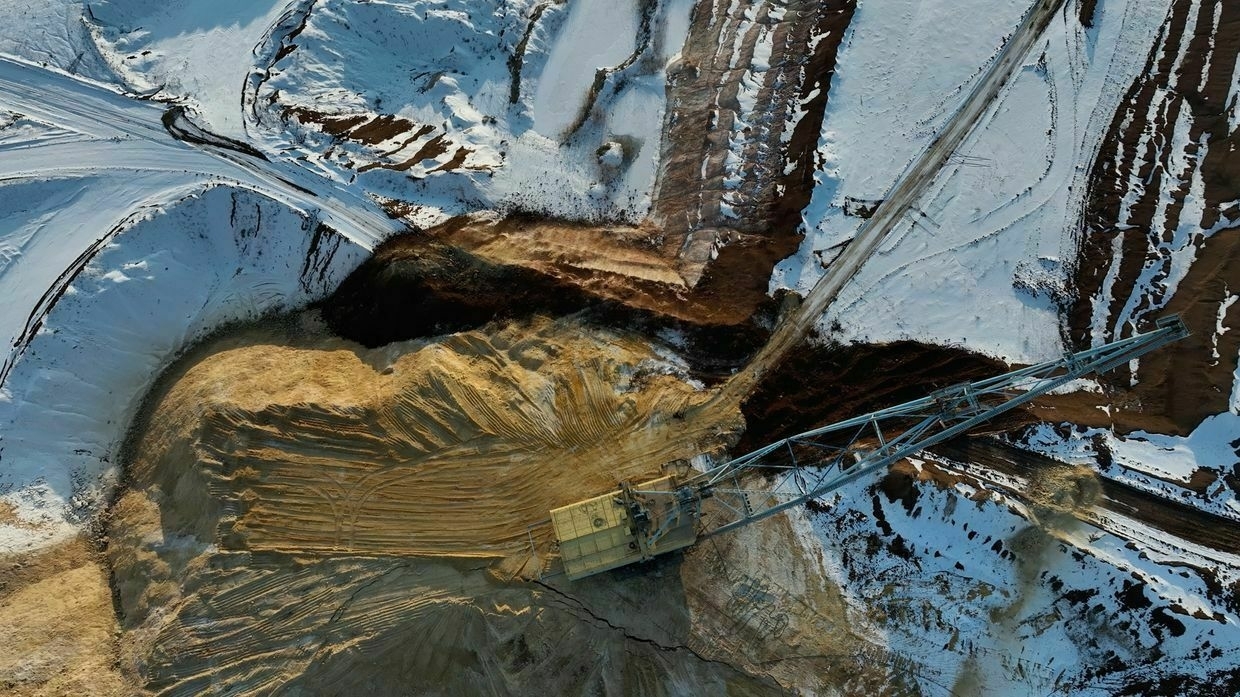
-
Iran reportedly preparing to mine Strait of Hormuz, a possible boon for Russia's Ukraine war coffers
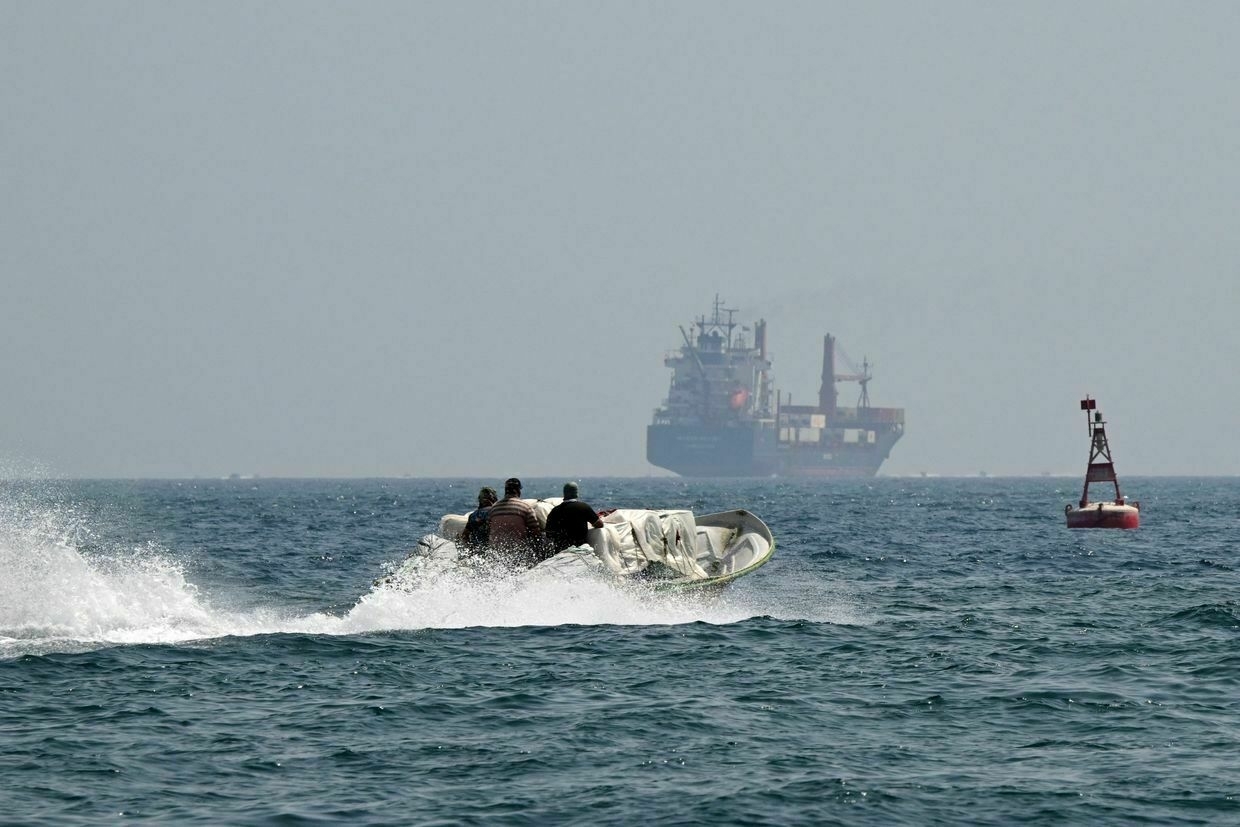
Iran is reportedly preparing to mine the Strait of Hormuz, a move that would spike global oil prices and give a significant boost to the Russian economy and its war machine in Ukraine.
Reuters reported on July 1 that Iran loaded naval mines onto vessels in the Persian Gulf last month, citing two U.S. officials, who said the preparations had been detected after Israel launched its “preemptive” attack against Iran on June 13.
Amid the conflict with Israel which has currently settled into an uneasy ceasefire, Iran has repeatedly threatened to block the Strait of Hormuz as a means of deterrence.
If the Strait were mined, Iran could block one-fifth of global oil demand and spike world energy prices — a boon for Russia’s oil-dependent economy.
“Any disruption to Gulf supplies would push up global crude prices. Prices for Russian crude would rise in line,” John Gawthrop, Argus Eurasia Energy editor, told the Kyiv Independent.
Russia’s energy sector made up 35-40% of its budget revenues pre-full-scale invasion and is powering its war machine.
Western sanctions on Russian energy and the G7’s Russian oil price cap of $60 per barrel have hampered its profits, with Russia losing more than $150 billion over the last three years, but have yet to deal a crippling blow.
The conflict between Israel and Iran caused a spike in prices — Brent crude, the global benchmark, on June 13 jumped from $69.36 to $75 per barrel, a surge that looked like it could grant Russia’s economy a reprieve.
Until the Israeli attacks, the future for Russian crude wasn’t looking so bright. Europe was planning its 18th sanctions package targeting Russia’s energy sector, and the G7 was pushing for a $45 price cap. Hungary and Slovakia have since blocked the sanctions package.
Prices have since settled along with the conflict and on July 2 Brent crude was $67.50, but if Iran does go ahead with mining the Strait of Hormuz, blocking one-fifth of global oil demand, another surge would follow.
This would also mean Iran blocks its own oil exports too, so it would only be a last resort from Tehran, David Fyfe, chief economist at Argus Media, a market analyst group, told the Kyiv Independent last month.
Ukraine’s new interceptor UAVs are starting to knock Russia’s long-range Shahed drones out of the skyRussia’s Shahed drone swarms are pummeling Ukraine on a nightly basis, inflicting ever more death and destruction in cities that had managed to carve out some sense of normalcy amid wartime. Civilian alarm has grown. With traditional air defense stockpiles running low, the government is banking on newly createdThe Kyiv IndependentKollen Post
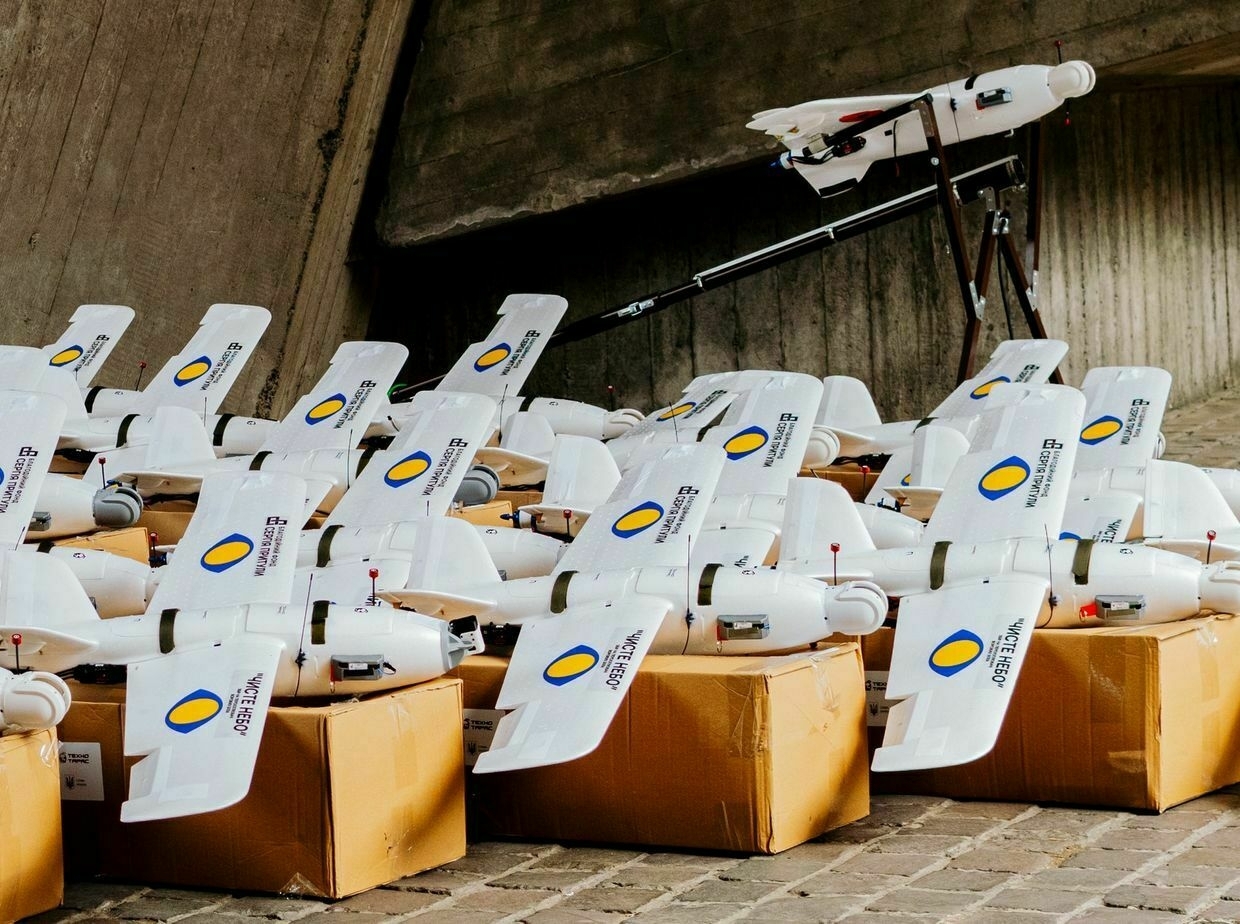
-
NATO chief urges continued US support for Ukraine as Pentagon halts arms shipments
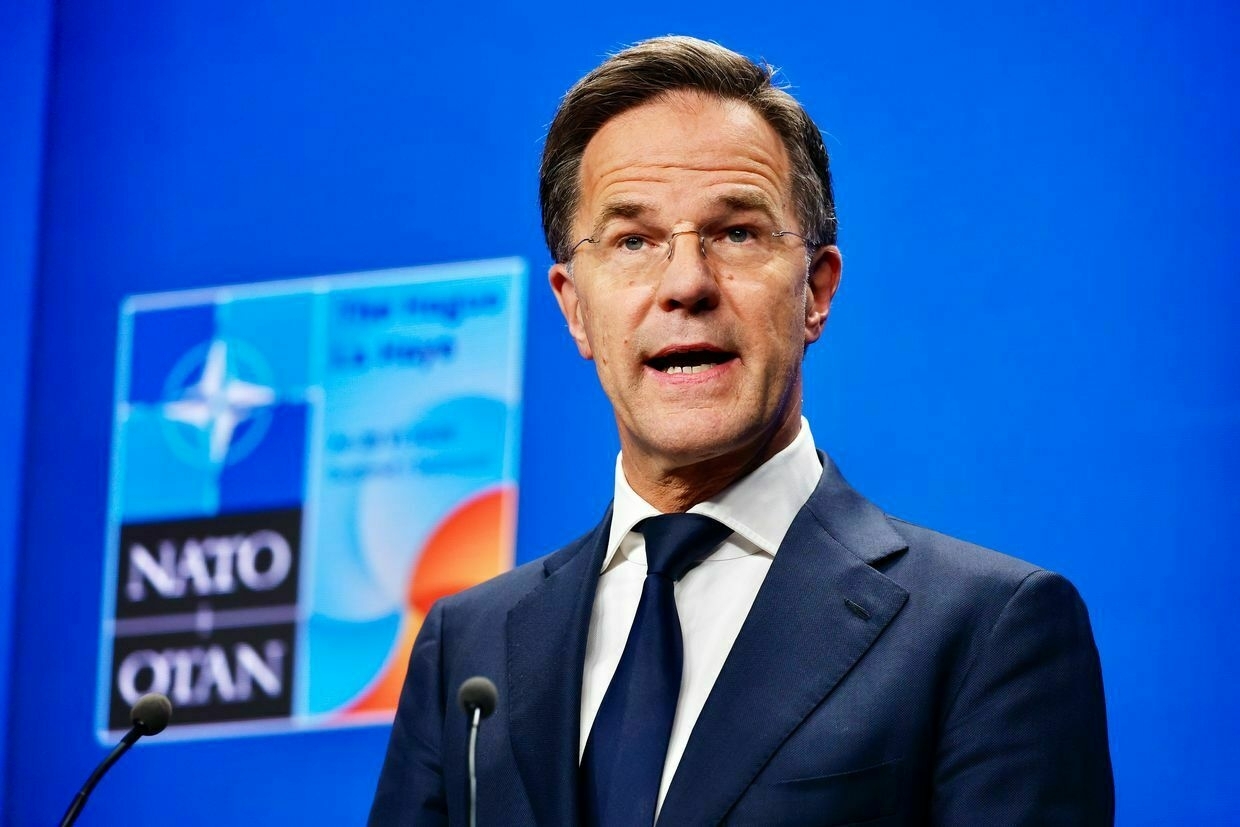
NATO Secretary General Mark Rutte said on July 2 that he understands Washington’s need to safeguard its own defense needs, but emphasized that Ukraine urgently requires sustained Western support.
“I totally understand that the U.S. always has to make sure its interests are covered,” Rutte told Fox News. “When it comes to Ukraine, in the short term, Ukraine cannot do without all the support it can get."
His remarks come as the U.S. Defense Department has halted deliveries of key weapons systems previously promised to Kyiv, including Patriot missiles, precision-guided artillery shells, Hellfire missiles, and munitions compatible with F-16 fighter jets.
The White House confirmed the pause in shipments, citing a broader reassessment of U.S. military stockpiles. No new U.S. military aid packages have been approved since U.S. President Donald Trump took office in January.
“I understand the U.S. has to take care of its stockpiles, and at the same time, we have to allow for some flexibility here,” Rutte said. “Europeans, in the meantime, are really stepping up."
Military aid delays will ‘encourage Russia to continue war,’ Ukraine tells US envoyUkraine warned that “any delay or hesitation in supporting Ukraine’s defense capabilities will only encourage Russia to continue war and terror, rather than pursue peace.” The Kyiv IndependentMartin Fornusek
The Kyiv IndependentMartin Fornusek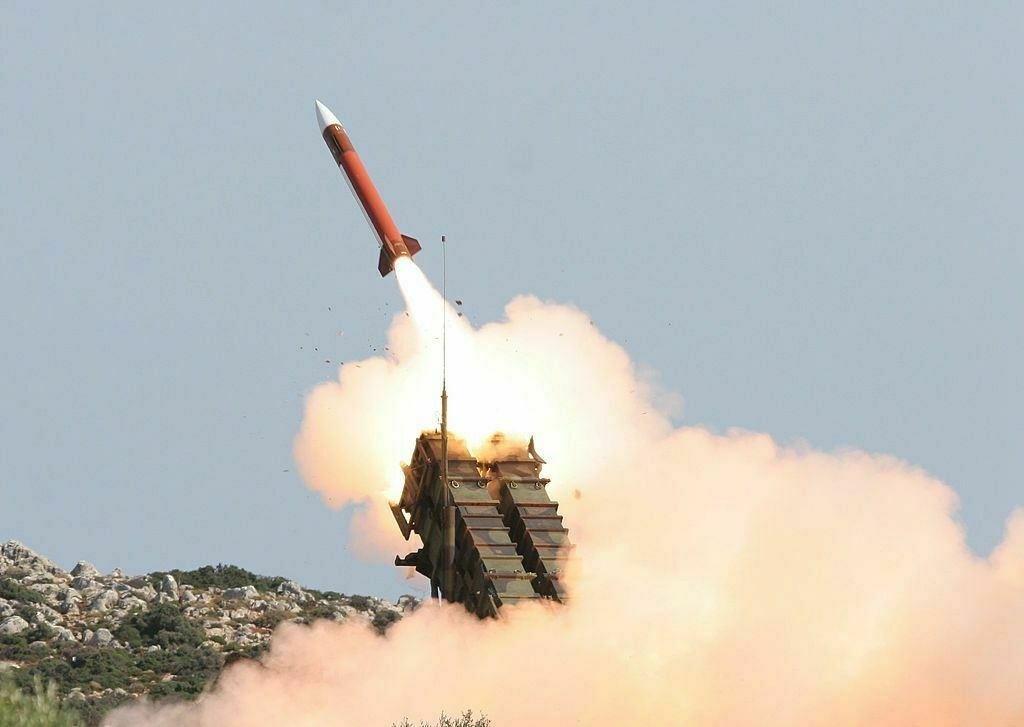
During last week’s NATO summit in The Hague, Trump and President Volodymyr Zelensky met behind closed doors. Rutte described the conversation as “a very good discussion, particularly focusing on air defense systems."
The reporting of paused deliveries comes as Ukraine faces one of the heaviest barrages of Russian drone and missile strikes since the start of the full-scale invasion.
Ukraine’s Defense Ministry responded by saying it has not received formal notification of delays or cancellations and has requested urgent consultations with U.S. defense officials.
The Foreign Ministry summoned U.S. Charge d’Affaires John Ginkel the same day, warning that any hesitation in maintaining Ukraine’s defense capabilities would embolden Russia.
The Kremlin welcomed the halt in arms shipments, saying it brings the war closer to an war.
“The fewer weapons that are supplied to Ukraine, the closer the end of the (war),” Kremlin spokesperson Dmitry Peskov said in response to the information.
U.S. Defense Secretary Pete Hegseth has previously indicated that the upcoming defense budget will scale back long-term military support for Ukraine, reflecting a shift in Washington’s priorities.
‘Ukraine is biggest landmine challenge since World War II,’ says head of world’s largest demining organizationRussia’s full-scale invasion may have turned Ukraine into the world’s largest minefield. As of March 2025, Ukraine’s mine-affected land spans an estimated 139,000 square kilometers — or 23% of its territory — covering more ground than all of Greece and posing an immense threat to civilian life and recovery efforts.The Kyiv IndependentDaria Shulzhenko
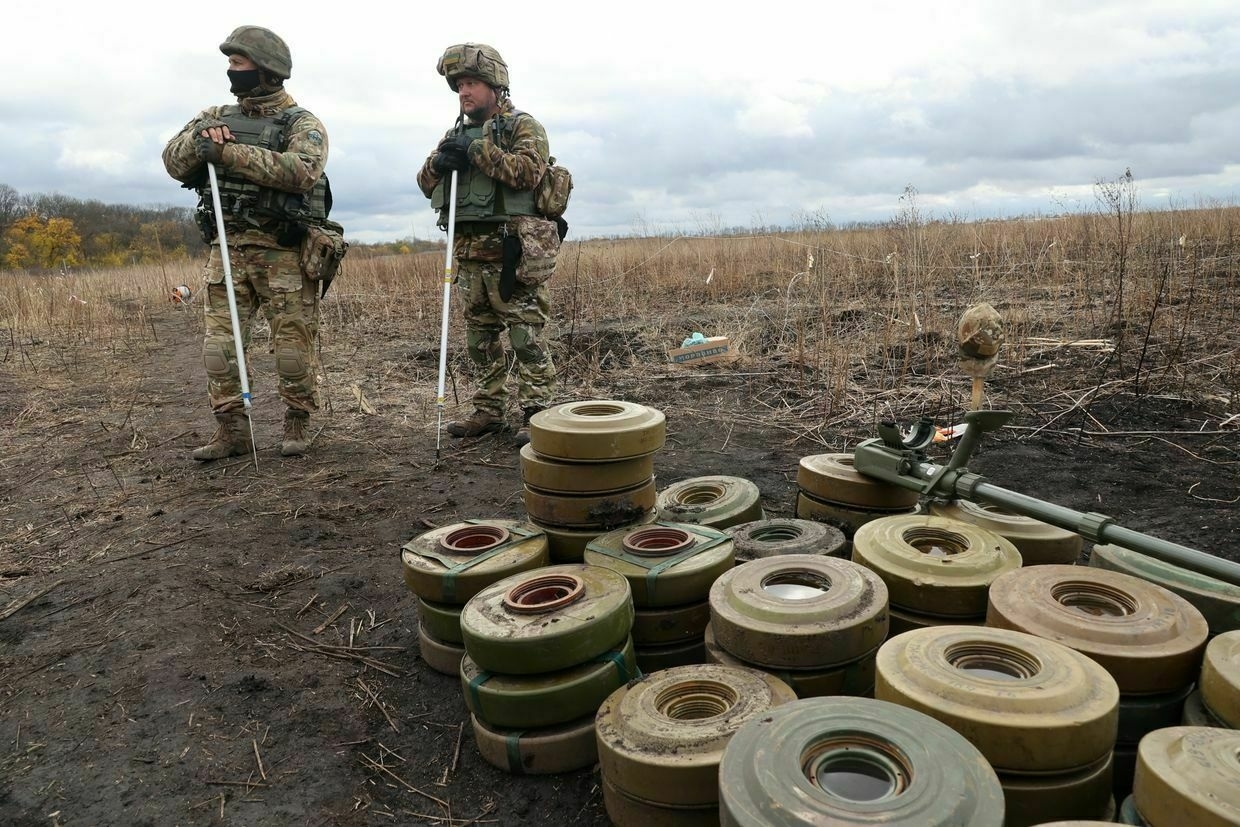
-
US envoy Kellogg denies agreeing to help halt Ukraine's drone strikes on Russia
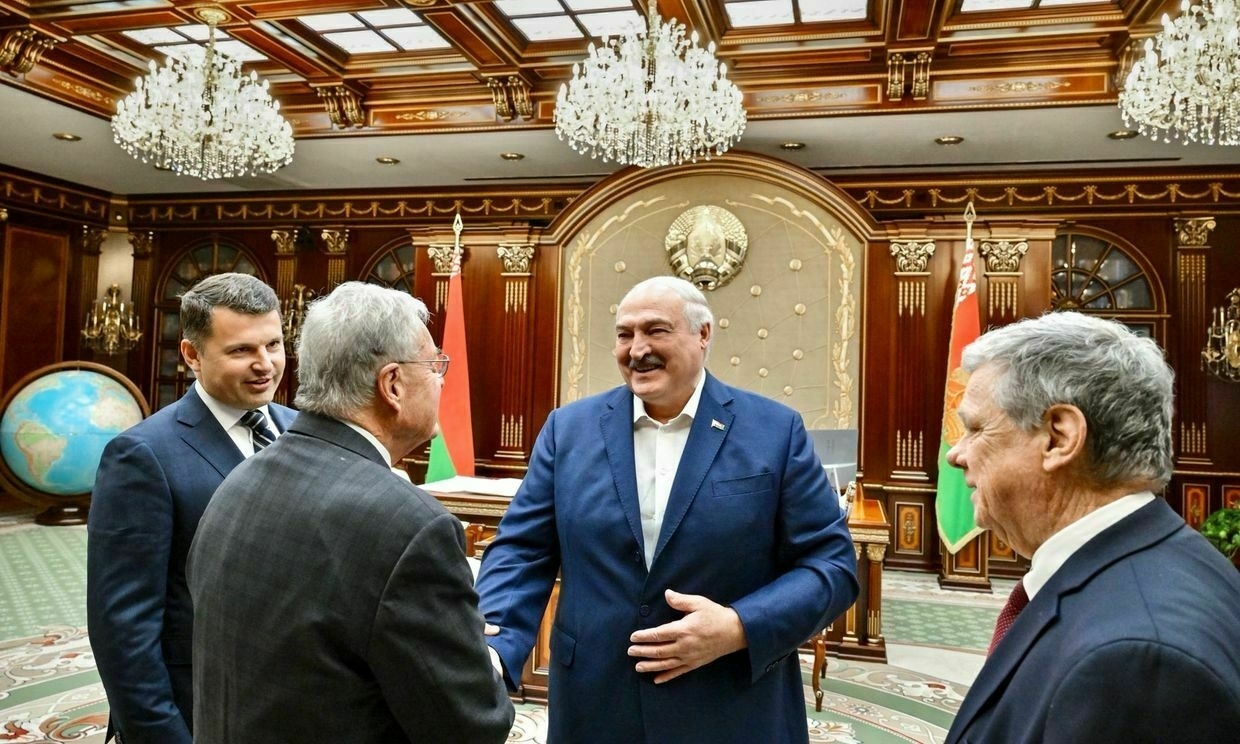
U.S. Special Envoy for Ukraine Keith Kellogg denied on July 1 that he agreed to “work on” halting Ukraine’s drone attacks on Russia, contradicting Belarusian dictator Alexander Lukashenko’s claim.
Speaking at a state event on Belarus’s Independence Day, Lukashenko said he relayed Russian President Vladimir Putin’s position to Kellogg during their June 21 meeting in Minsk.
According to Lukashenko, the Russian president is willing to consider a ceasefire in Ukraine if Ukrainian forces stop conducting drone strikes on Russian territory.
“I conveyed this position to the Americans,” Lukashenko said on July 1. “We will work on it, said (the U.S. special envoy), in this direction."
Kellogg pushed back on the claim, writing on X that the quote was “taken out of context” and misrepresented the substance of their talks.
“At no point did I make comments related to Ukraine’s prosecution of the war outside of a total ceasefire,” he said. “In my conversation with Lukashenko, we discussed a full and unconditional ceasefire."
The June meeting between Kellogg and Lukashenko marked the highest-level U.S. visit to Belarus since former Secretary of State Mike Pompeo’s 2020 trip. Belarusian state media widely portrayed Kellogg’s visit as a sign of thawing relations.
Shortly after the talks, Belarus released opposition leader and political prisoner Siarhei Tsikhanouski, who had been jailed since the 2020 presidential election.
Lukashenko has ruled Belarus since 1994 and remains a key ally of the Kremlin. His regime has allowed Russian troops and equipment to use Belarusian territory to attack Ukraine since the start of the full-scale invasion in February 2022.
Military aid delays will ‘encourage Russia to continue war,’ Ukraine tells US envoyUkraine warned that “any delay or hesitation in supporting Ukraine’s defense capabilities will only encourage Russia to continue war and terror, rather than pursue peace.” The Kyiv IndependentMartin Fornusek
The Kyiv IndependentMartin Fornusek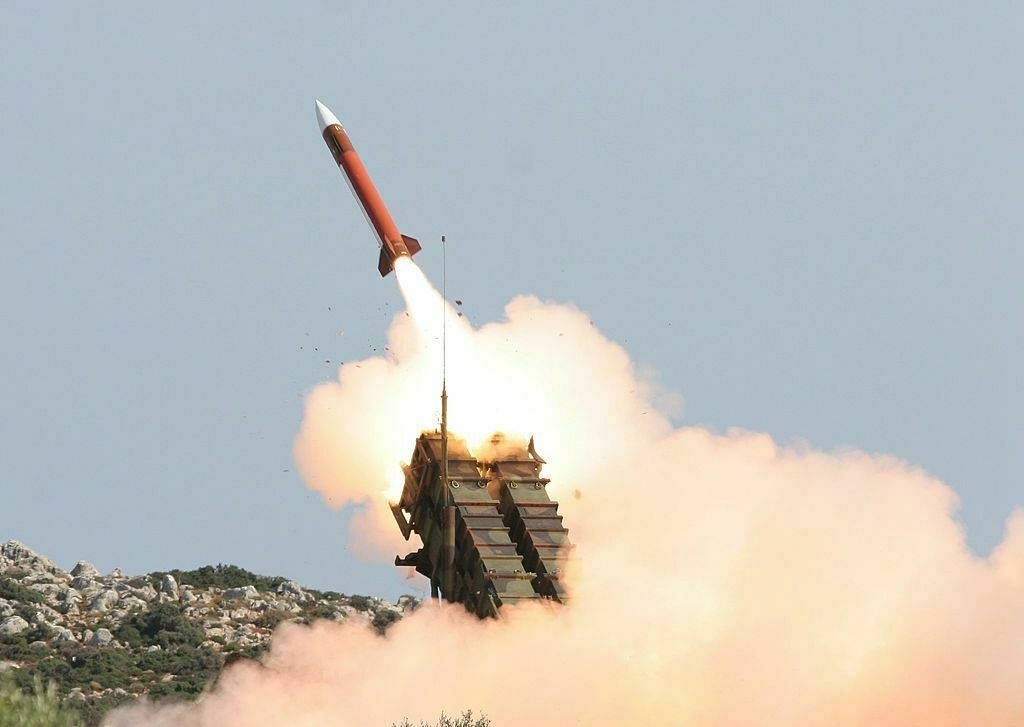
-
Failed US peace effort left Ukraine worse off, expert argues
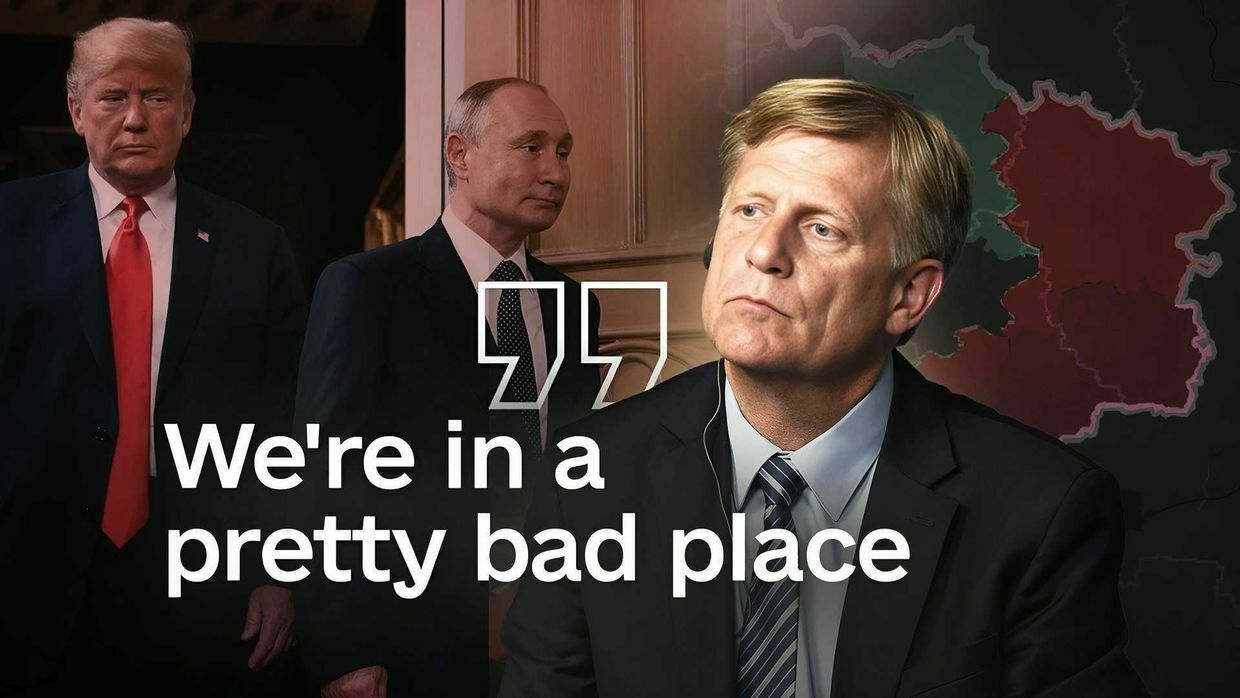
The Kyiv Independent’s Chris York sat down with Michael McFaul, an academic and former U.S. ambassador to Russia (2012–2014), to discuss the state of the Ukraine-Russia peace process following U.S. President Donald Trump’s failed effort, the threat of U.S. disengagement, and a congressional bill introducing new sanctions against Russia and its trading partners supporting its war machine.
-
Russia's Rosatom seeks to sell 49% stake in Turkey's first nuclear plant
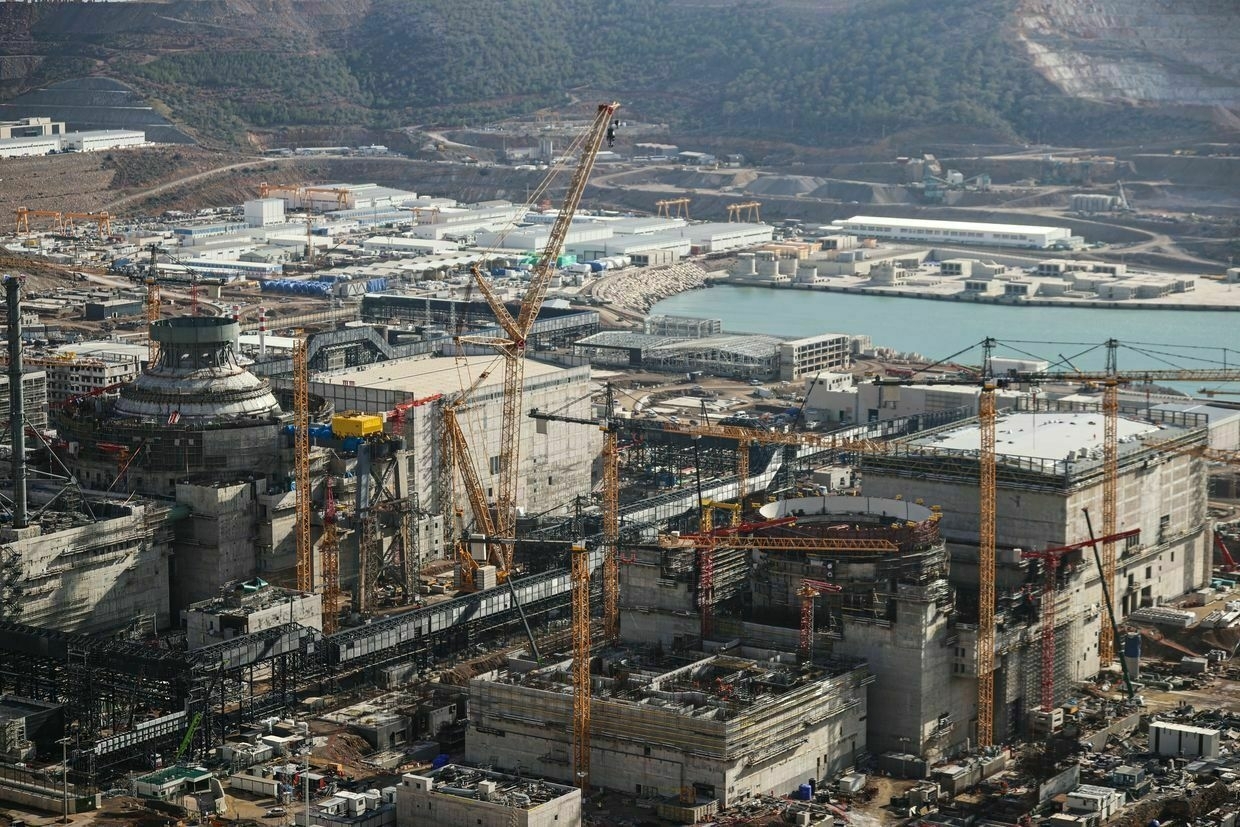
Russian nuclear giant Rosatom is negotiating the sale of a 49% stake in Turkey’s Akkuyu Nuclear Power Plant project, estimated at $25 billion, Bloomberg reported on July 1.
The project is a cornerstone of Russian-Turkish energy cooperation. The Akkuyu plant, located in Mersin Province, is poised to become Turkey’s first nuclear power facility.
The 4.8-gigawatt project is expected to begin supplying electricity in 2026, Anton Dedusenko, chairman of the board at Rosatom’s Turkish subsidiary, told Bloomberg.
“The closer we are to the first unit generating electricity, the more investors start coming,” Dedusenko said on the sidelines of the Nuclear Power Plants Expo & Summit in Istanbul.
A previous sale attempt in 2018 collapsed over commercial disagreements. This time, financing is complicated by the threat of U.S. sanctions, prompting Moscow and Ankara to consider alternative payment mechanisms.
“There are many ways how to deliver money here. We can deliver the Russian rubles, the Turkish lira,” Dedusenko said.
Despite its NATO membership, Turkey has maintained open diplomatic and economic ties with Russia throughout the full-scale war against Ukraine, while continuing to supply aid to Kyiv and host international mediation efforts.
‘Ukraine is biggest landmine challenge since World War II,’ says head of world’s largest demining organizationRussia’s full-scale invasion may have turned Ukraine into the world’s largest minefield. As of March 2025, Ukraine’s mine-affected land spans an estimated 139,000 square kilometers — or 23% of its territory — covering more ground than all of Greece and posing an immense threat to civilian life and recovery efforts.The Kyiv IndependentDaria Shulzhenko
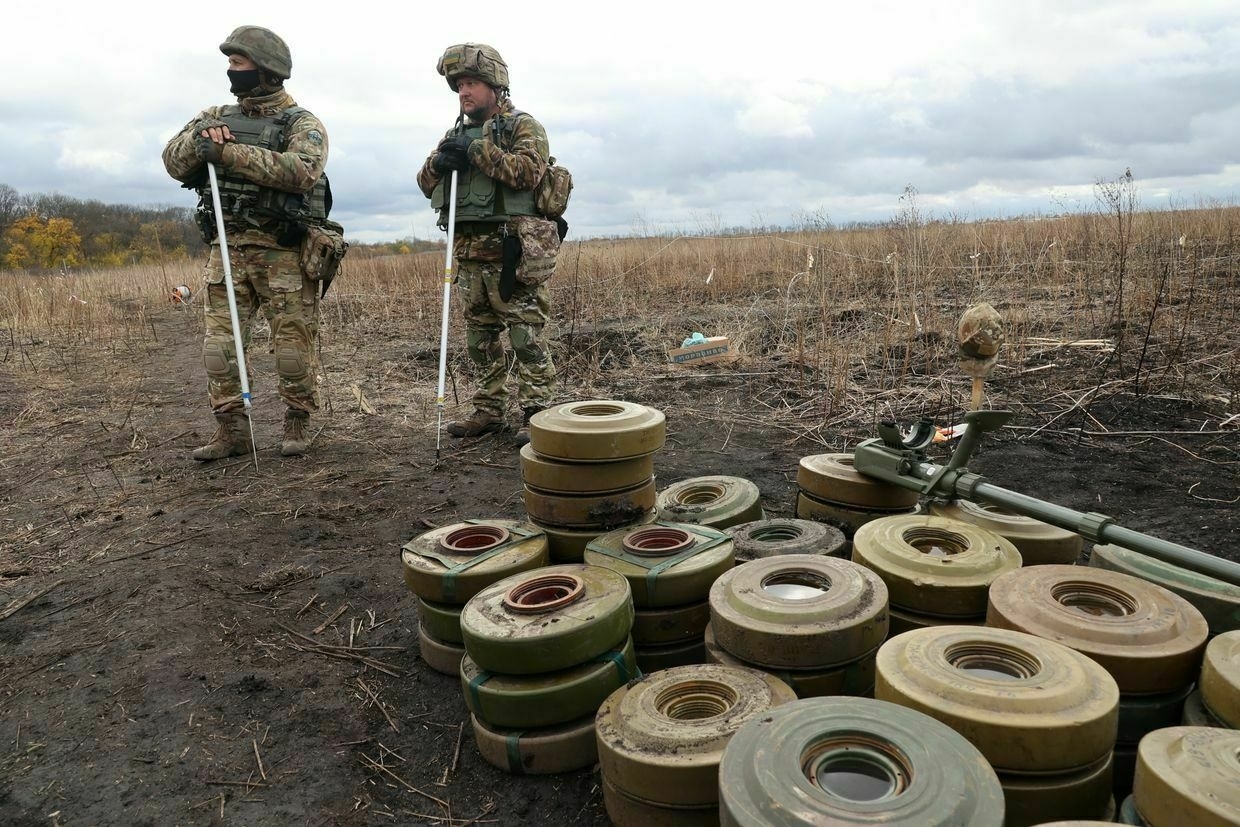
-
Ukraine suspends citizenship of Moscow-linked church head

Metropolitan Onufrii of Kyiv, the primate of the Ukrainian Orthodox Church of the Moscow Patriarchate, has had his Ukrainian citizenship suspended by a presidential decree, the Security Service of Ukraine (SBU) announced on July 2.
The SBU said it had established that Onufrii, also known by his secular name, Orest Berezovskyi, voluntarily received Russian citizenship in 2002 and failed to inform Ukrainian authorities of the fact. The new Ukrainian law on multiple citizenship lists holding a Russian passport as grounds for the removal of Ukrainian citizenship.
The security agency also said Onufrii has maintained ties with the Russian Orthodox Church (ROC) and actively resisted Ukraine’s efforts to secure ecclesiastical independence from Moscow and its leader, Patriarch Kirill.
The Ukrainian Orthodox Church of the Moscow Patriarchate (UOC-MP) has faced growing scrutiny and public criticism in Ukraine since the start of Russia’s full-scale invasion in 2022, with many officials accusing it of maintaining loyalty to Moscow and undermining Ukraine’s sovereignty.
The Moscow-linked church is separate from the Orthodox Church of Ukraine, which was granted autocephaly (autonomy) by Ecumenical Patriarch Bartholomew I of Constantinople in 2019.
“Despite the full-scale invasion, Berezovsky (Onufrii) continues to support the policies of the Russian Orthodox Church and its leadership, particularly Patriarch Kirill (Gundyaev),” the SBU said in a statement.
Zelensky signed a law in 2024 banning the activities of religious organizations affiliated with Russia. The law was widely seen as targeting the UOC-MP, which remains legally subordinate to the Moscow-based ROC despite its claim to have severed ties.
Since the start of the full-scale invasion in February 2022, over 100 UOC-MP clergy members have come under criminal investigation for alleged collaboration with Russian forces or spreading pro-Kremlin propaganda, according to the SBU. Nearly 50 have been charged, and courts have issued verdicts in 26 cases.
The UOC-MP continues to insist that it operates within Ukrainian law and that its 2022 declaration of independence from Moscow was genuine, though many in Ukraine view it as purely symbolic and lacking credibility.
No God But TheirsThe Kyiv IndependentDanylo Mokryk
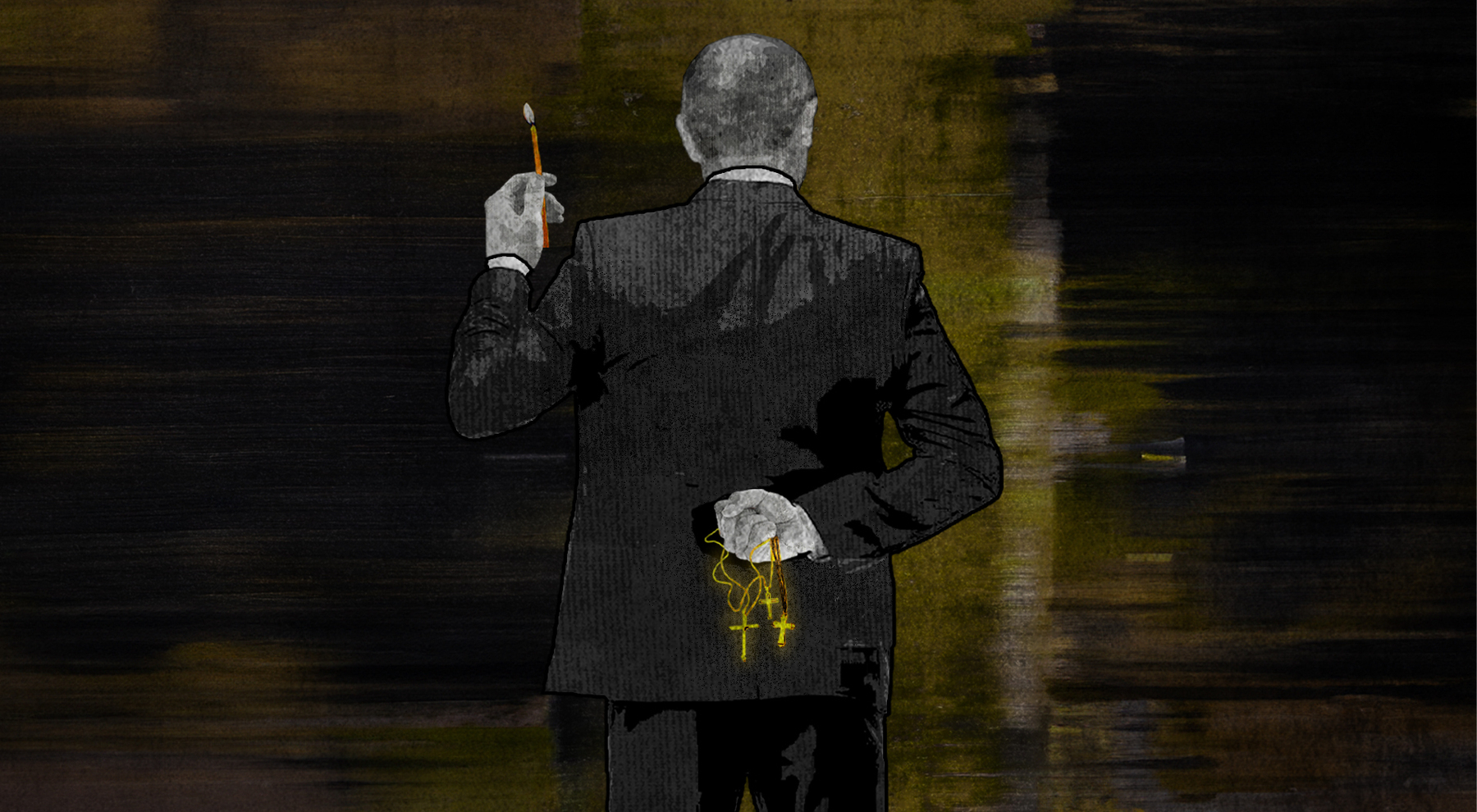
-
'Ukraine is biggest landmine challenge since World War II,' says head of world’s largest demining organization
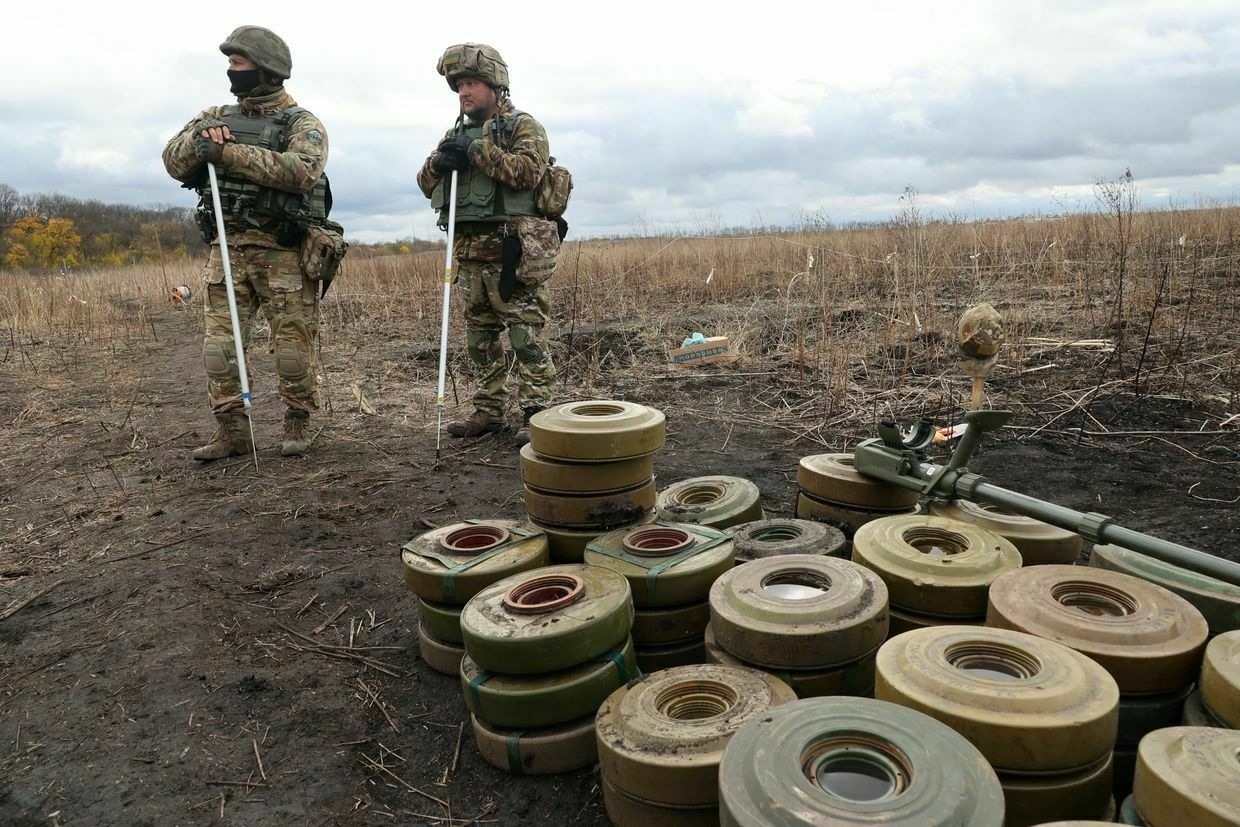
Russia’s full-scale invasion may have turned Ukraine into the world’s largest minefield.
As of March 2025, Ukraine’s mine-affected land spans an estimated 139,000 square kilometers — or 23% of its territory — covering more ground than all of Greece and posing an immense threat to civilian life and recovery efforts.
Clearing landmines and unexploded ordnance is essential to preventing civilian casualties and enabling the safe use of land and infrastructure, fostering the country’s recovery and future development.
Demining in Ukraine is primarily carried out by the State Emergency Service and the Armed Forces, with both international and domestic non-governmental organizations contributing to the effort.
The world’s largest demining non-governmental organization, the HALO Trust, has operated in Ukraine since 2015 and scaled up its efforts after the full-scale invasion began.
The HALO Trust has cleared nearly 7.9 million square meters of land and located over 41,000 pieces of unexploded ordnance since Feb. 24, 2022.
The organization has grown from a small team of 400 in Kramatorsk, a front-line city in Donetsk Oblast, to a workforce of 1,500 people operating in eight regions across Ukraine.
The Kyiv Independent spoke with James Cowan, the CEO of HALO Trust, about the organization’s ongoing effort to rid Ukraine of landmines, his assessment of how long it might take, and what new technology could revolutionize the process.
Editor’s note: This interview has been edited and condensed for clarity.
The Kyiv Independent: How would you describe the scale of landmine contamination in Ukraine today, and how does it compare to other conflict zones you’ve worked in?
James Cowan: The HALO Trust has existed since 1988. We are the world’s largest NGO that clears landmines, so we know about other areas of the world.
This is the biggest landmine challenge since World War II.
Unless it's done quickly, it's going to take hundreds of years.
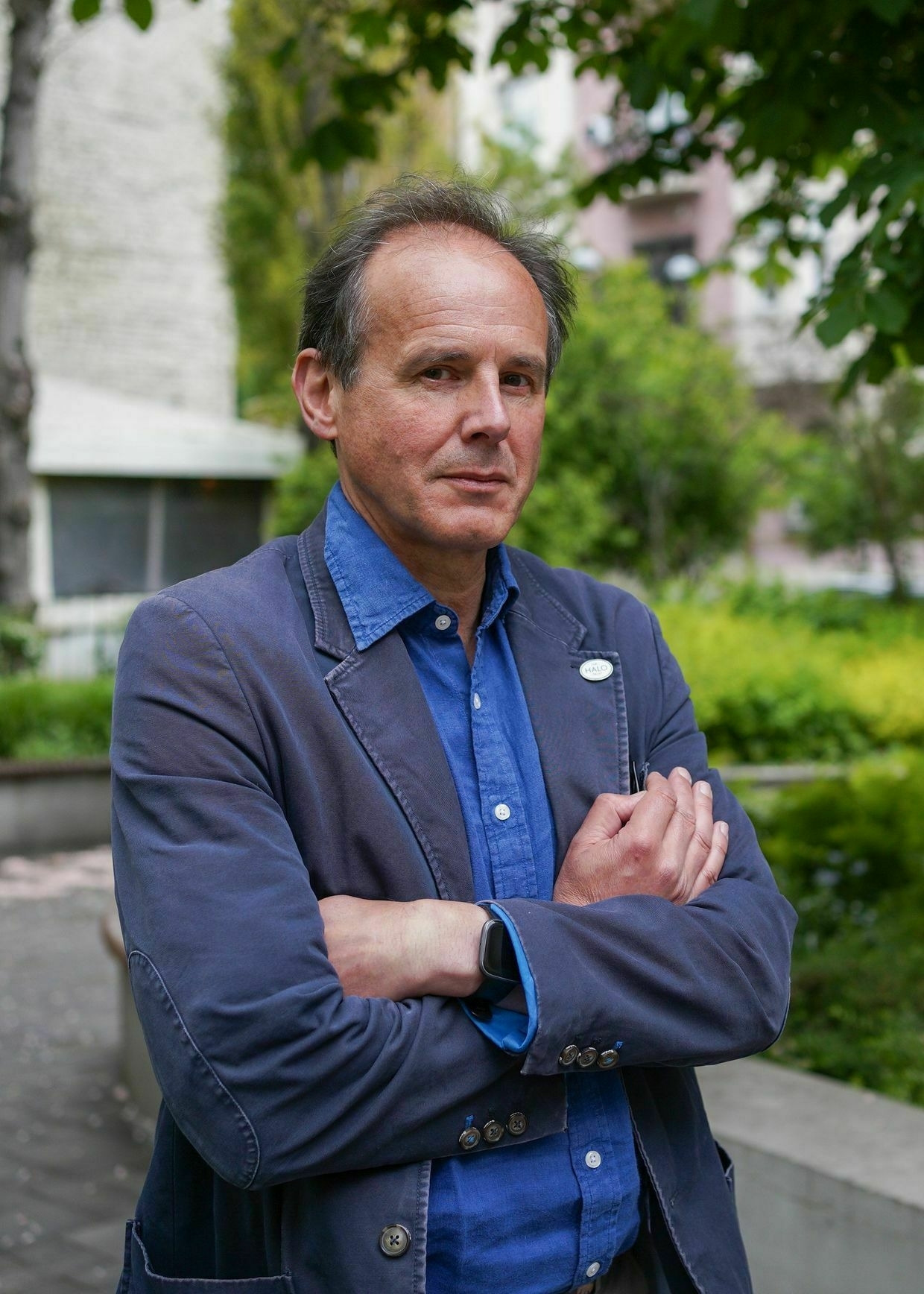
James Cowan in the park after the interview in Kyiv, Ukraine on May 15, 2025.(Elena Kalinichenko/The Kyiv Independent)
The nearest example is the minefield between North and South Korea — it's 178 kilometers long. Ukraine's front line is 1,000 kilometers long, and that is not the only contamination.
There are landmines well inside free Ukraine and landmines well inside Russian-controlled parts of Ukraine.
The Kyiv Independent: Can you describe how your team operates in Ukraine — which regions you're active in, and what the process looks like from detection to removal when a mine or unexploded ordnance is found?
James Cowan: There are three units: one in the north, one in the northeast, and one in the south. We want to expand further, and when it is possible, we would be happy to help Ukraine clear even more parts of the country.
We have survey teams that confirm the contamination and are also trying to shrink the area to the absolute minimum. We then bring in our teams to conduct the clearance.
This is an area where there could be improvement. We work in countries like Afghanistan, which is mountainous; in countries like Cambodia, which is jungle; and in countries like Angola, which is African bush. In those places, mechanical methods are not easy to use. But in Ukraine, there are open fields — some of the best agricultural land in the world. They are the most suitable and optimized environment for mechanical clearance.
We have mechanical diggers, but we're not allowed to deploy them because authorization is very slow. We would ask the Ukrainian government to speed that up because currently, it is very bureaucratic and takes too long. We need to be able to use all the assets available.
Ukraine does not want to be like Afghanistan, where HALO has worked since 1988 and is still working.
The Kyiv Independent: Why is it so difficult to speed up the process?
James Cowan: Every country has its own bureaucracy. Sometimes, government officials aren't as entrepreneurial as those in the private sector. But it would be good to see more speed. This is not a conscious decision but more a bureaucratic inertia.
But Ukraine needs to act because its land is covered in landmines. Without action, Ukraine can't export its grain, open its roads, or bring its population back. Unless it's done quickly, it's going to take hundreds of years.
The Kyiv Independent: Given the ongoing ceasefire negotiations between Ukraine and Russia, do you think demining should also be part of the talks?
James Cowan: If a ceasefire happens, that is the inflection point. It is the point at which everyone's efforts move from a war to a defensive posture, in which, of course, Ukraine's army will continue to protect the sovereignty of their country. Still, the civilian effort will move toward reconstruction and away from the fighting.
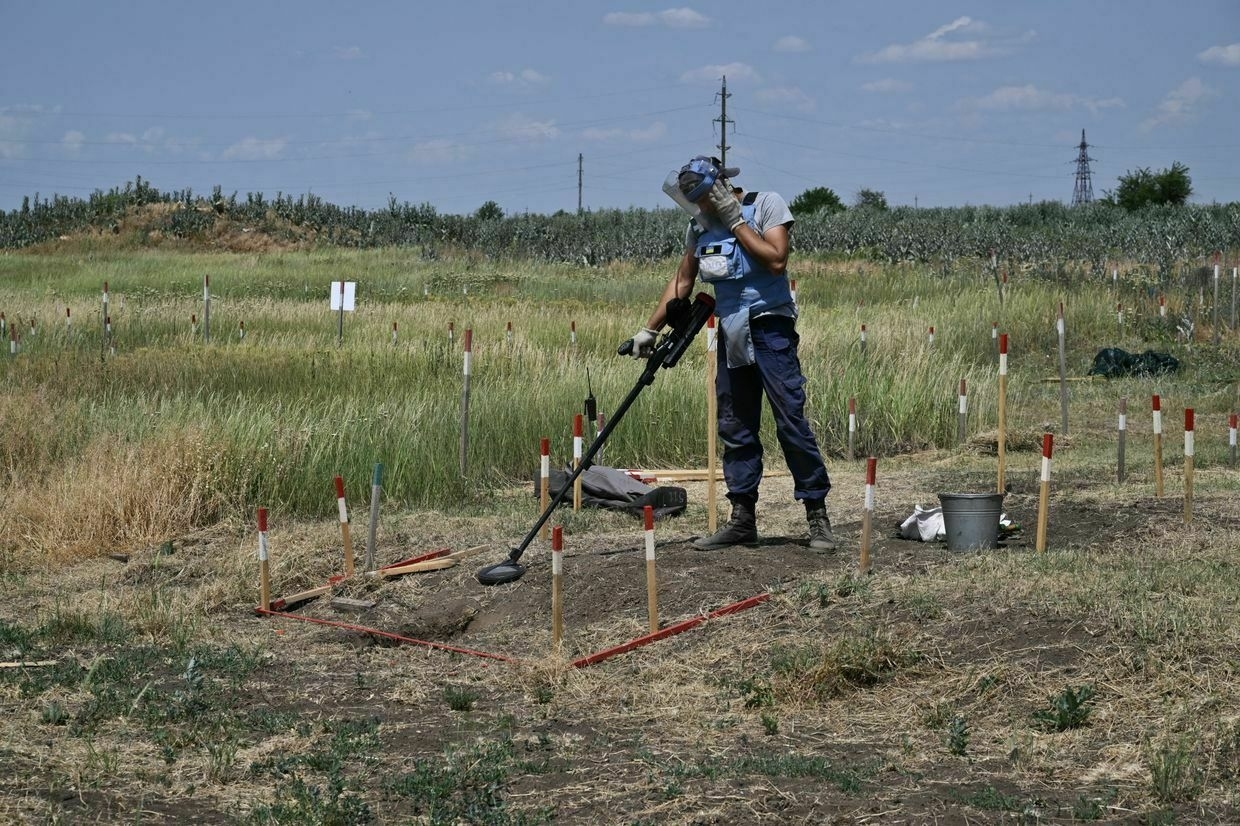
A deminer from the HALO Trust NGO clears mines in a field outside Snihurivka, Mykolaiv Oblast, Ukraine, on June 4, 2024. (Genya Savilov / AFP via Getty Images) At that moment, Ukraine's priority will be to restart its economy, get all that land that hasn't been farmed for three or four years back into use, and allow communities to return to their homes. And it's not just about large-scale farming — it's also about local, small-scale agriculture. Some people haven't been able to grow vegetables, raise goats or sheep, or use their cows and donkeys. They need access to their land again.
It's also about reopening roads, schools, shops, and factories. All these things need to be cleared (from mines), and the whole economy needs to be helped to get up and going.
There is a lot of emphasis on the mineral deal, but you can't mine for minerals without demining for landmines.
The Kyiv Independent: If the war were to end tomorrow, would it be realistic to fully clear all mines in Ukraine within the next 10 years?
James Cowan: If the war were to stop tomorrow along the current front line, it wouldn't be possible to clear landmines on the Russian-occupied side, despite it being sovereign Ukrainian territory, unless Russia allows it.
Combining artificial intelligence with imagery is a key development.
Regarding territory under Ukrainian control, whether all landmines can be cleared within 10 years remains open — but I believe it's possible. If Ukraine applies the same level of innovation and energy to mechanizing demining as it has to advancing drone technology, then yes, I think it's achievable. That said, it's still too early to be certain.
The Kyiv Independent: How do you assess Ukraine's National Mine Action Strategy (approved in June 2024)? In your view, how realistic and effective is it given the current scale of contamination? Has HALO Trust been involved in shaping or advising on the strategy?
James Cowan: I've worked alongside Ukraine's First Deputy Prime Minister, Yulia Svyrydenko. The strategy she's built is a good one.
But all strategies need to evolve; they're not just documents on a dusty shelf, and this one will. I'd particularly like to see the adoption of mechanical clearance.
The Kyiv Independent: What emerging technologies do you see as having the greatest potential to transform demining efforts in Ukraine?
James Cowan: Combining artificial intelligence with imagery is a key development. In terms of detection, there are several exciting technologies, such as synthetic aperture radar, ground-penetrating radar, and magnetic resonance — especially the magnetic resonance methods developed in Australia for detecting rare earth elements like gold, which can also be applied to finding landmines.
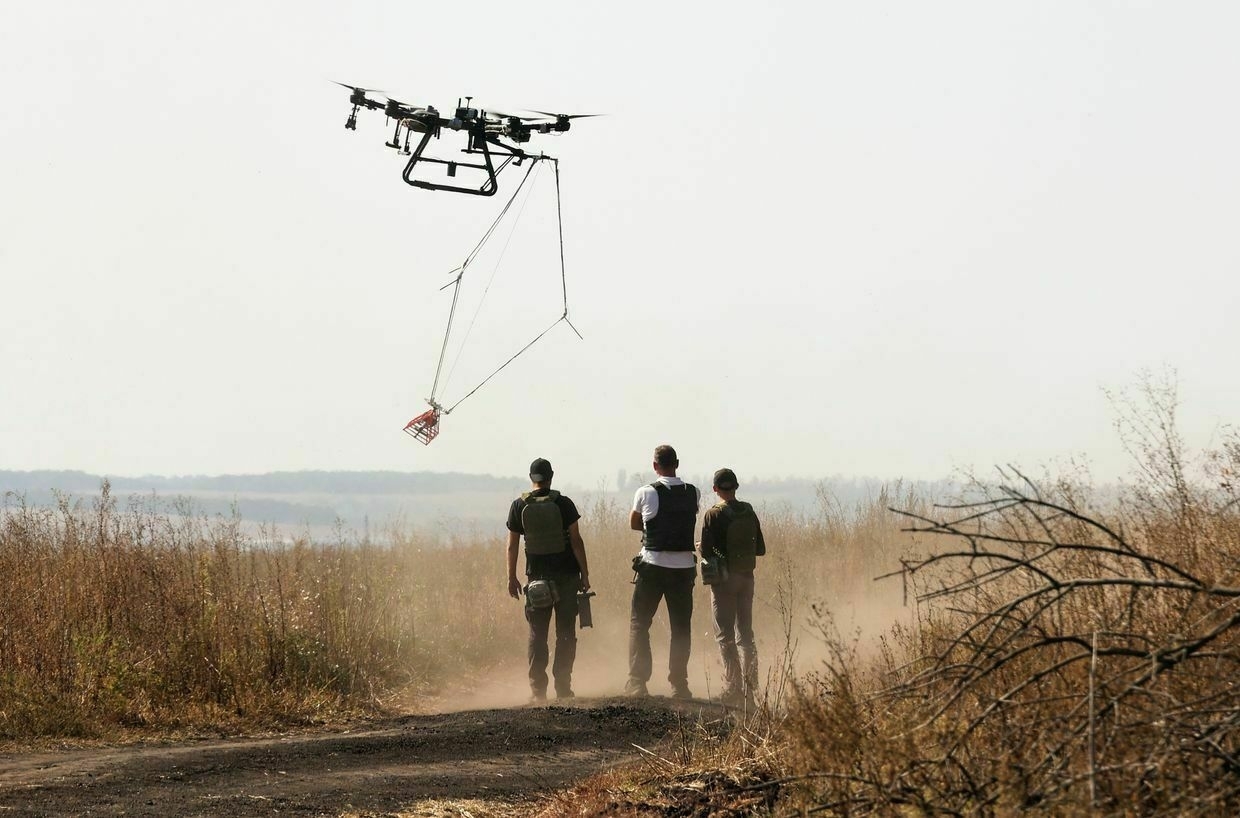
Representatives of the Postup NGO inspect a mined area with a drone as part of demining effort in Kharkiv Oblast, Ukraine, on Oct. 1, 2023. (Vyacheslav Madiyevskyi / Ukrinform/Future Publishing via Getty Images) There are also cutting-edge nuclear industry technologies, like the neutron-associated particle imaging (NAPI), which could be game-changing. The problem is that these technologies are very good at finding mines, but also find mines that aren't there. This means they produce false alarms, which slows the process. So, the technology needs to become better at only detecting real landmines, not fake ones.
The Kyiv Independent: As the CEO of a leading humanitarian organization, you chose not to publicly condemn the U.S. decision to provide Ukraine with anti-personnel mines in 2024. Could you explain why? Has your position on this changed since then?
James Cowan: Ukraine's fundamental right to self-defense is something everyone should respect. Your country is fighting for its very existence. Who am I to question your right to exist? I wasn't willing to condemn you for that.
Yes, my organization's mission is to clear landmines, but I'm not here to judge who is right or wrong. My role is simply to clear the landmines.
Note from the author:
Hi! Daria Shulzhenko here. I wrote this piece for you. Since the first day of Russia's all-out war, I have been working almost non-stop to tell the stories of those affected by Russia’s brutal aggression. By telling all those painful stories, we are helping to keep the world informed about the reality of Russia’s war against Ukraine. By becoming the Kyiv Independent's member, you can help us continue telling the world the truth about this war.
Ukraine to exit mine ban treaty, citing war demands, realities on the groundUkraine looks to withdraw from a major international treaty on anti-personnel landmines to bolster its defense on the battlefield, where its troops are trying to hold off Russia’s intensifying offensive. President Volodymyr Zelensky, on June 29, had requested that Ukraine withdraw from the 1997 Ottawa Treaty that banned the productionThe Kyiv IndependentAsami Terajima
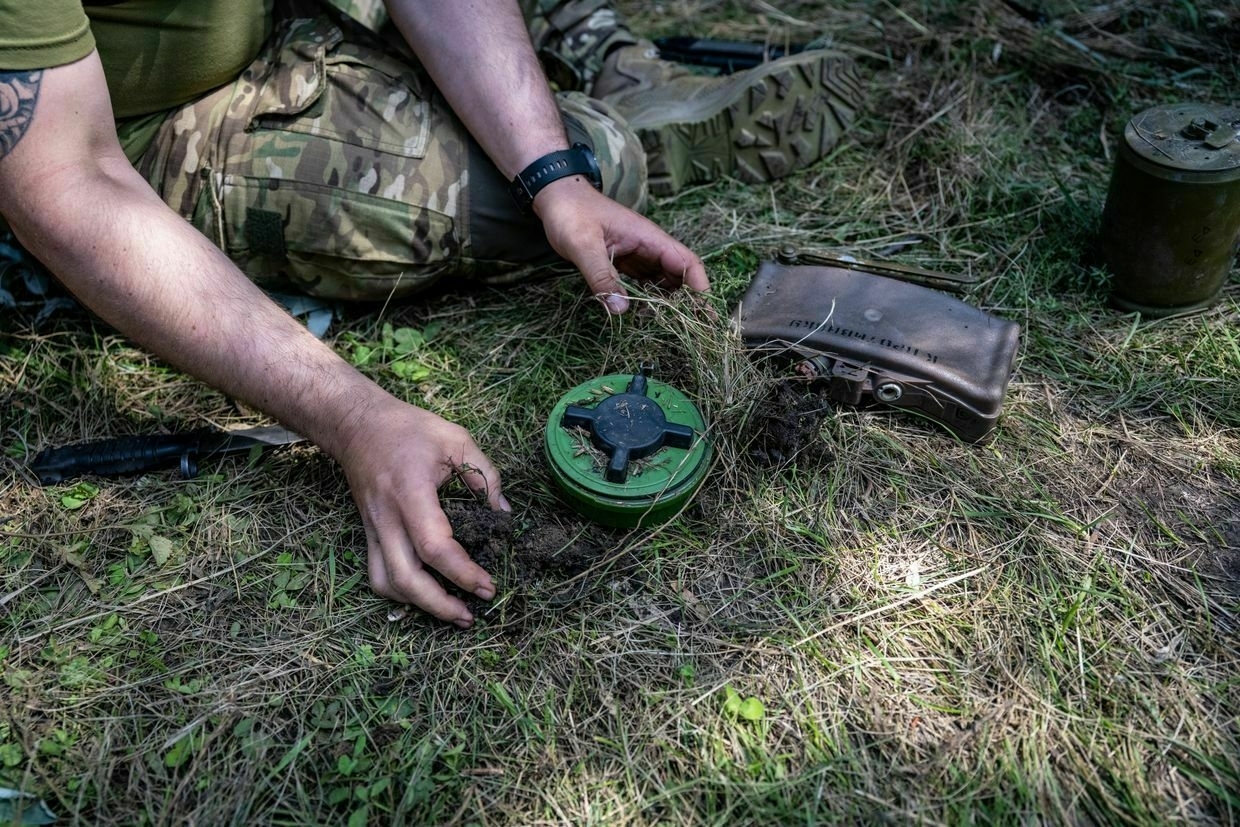
-
NEWSFLASH: Myroslava gives birth
Editor’s Note:
Myroslava will get five months of full paid maternity leave – far more than is available to most! Support our policy? Help us back it by upgrading today.It was the day Myroslava, our managing editor, was looking forward to the most.
Despite all her fears, despite the horrors of war, despite the risks – she became a mother.
The whole team is incredibly excited to share that Myroslava has given birth to a tiny newborn – well, not that tiny at 4.01 kilograms and 56 cm (8.8 pounds and 22 inches).
At the 90th percentile in both weight and height, we look forward to the new child also being similarly talented and empathetic.
Recently some women have given birth under the sound of shelling in specially-equipped shelters. Thankfully, Myroslava's delivery went well, and that day brought an unexpected reprieve in air raids.
Please congratulate her in the comments with any well wishes you might have!
After the paywall:
–The baby’s first photos with Myroslava
–What Myroslava will name her child, and the historical meaning behind it– How The Counteroffensive survives (barely) without Myroslava.
-
Ukraine denies another Russian claim of Dnipropetrovsk Oblast breakthrough, says small incursion repelled
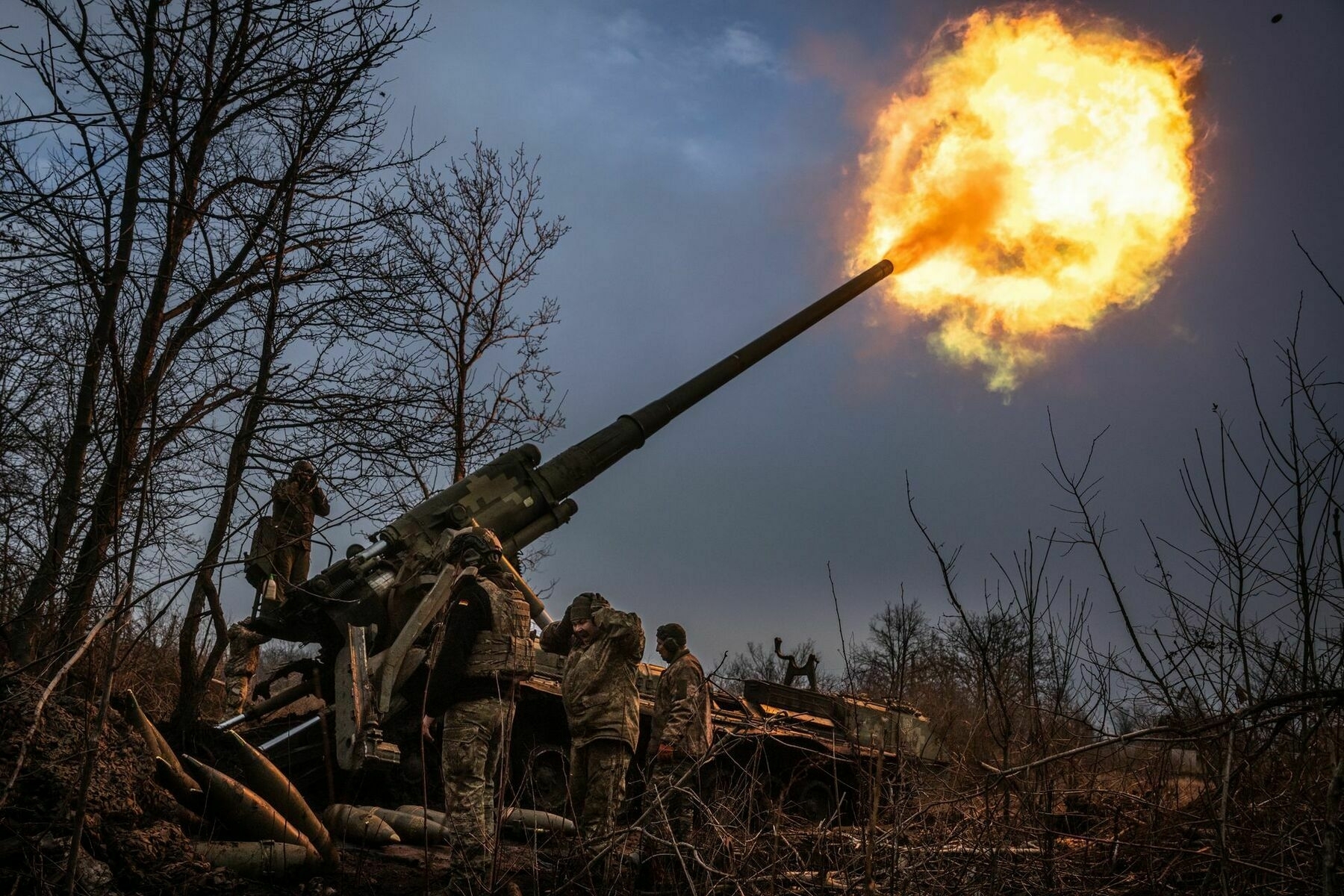
Russian forces have not succeeded in crossing into Dnipropetrovsk Oblast, Ukraine’s military said on July 2, refuting another Russian claim of a breakthrough into the central-eastern region.
The General Staff of the Armed Forces of Ukraine dismissed Russian claims of territorial gains as disinformation and said a recent small incursion was repelled.
According to the statement, a small Russian reconnaissance group managed to briefly enter the village of Dachne, located on the edge of Dnipropetrovsk Oblast. The group reportedly took photos with a Russian flag, but Ukrainian forces “eliminated them.”
Russian troops have intensified efforts to breach the administrative border between Donetsk and Dnipropetrovsk oblasts in eastern Ukraine, but have failed to gain ground despite repeated assaults, the military said.
"(Russian troops) have had no success in achieving this demonstrative goal, no matter how many ‘meat wave assaults’ they launch with small infantry units and sabotage-reconnaissance groups," the General Staff said in a statement.
Donetsk Oblast, which has been a focal point of Russia’s invasion since 2014 and a major battleground since the full-scale invasion in 2022, borders the more centrally located Dnipropetrovsk Oblast. Russian forces have not entered Dnipropetrovsk Oblast territory in force, although they regularly strike the region with missiles, drones, and aerial bombs.
In a separate incident, two Russian soldiers were captured during a subsequent assault on Dachne and are now in Ukrainian custody, the military said. They were detained by a unit of Ukrainian Marines and added to “Ukraine’s prisoner exchange pool."
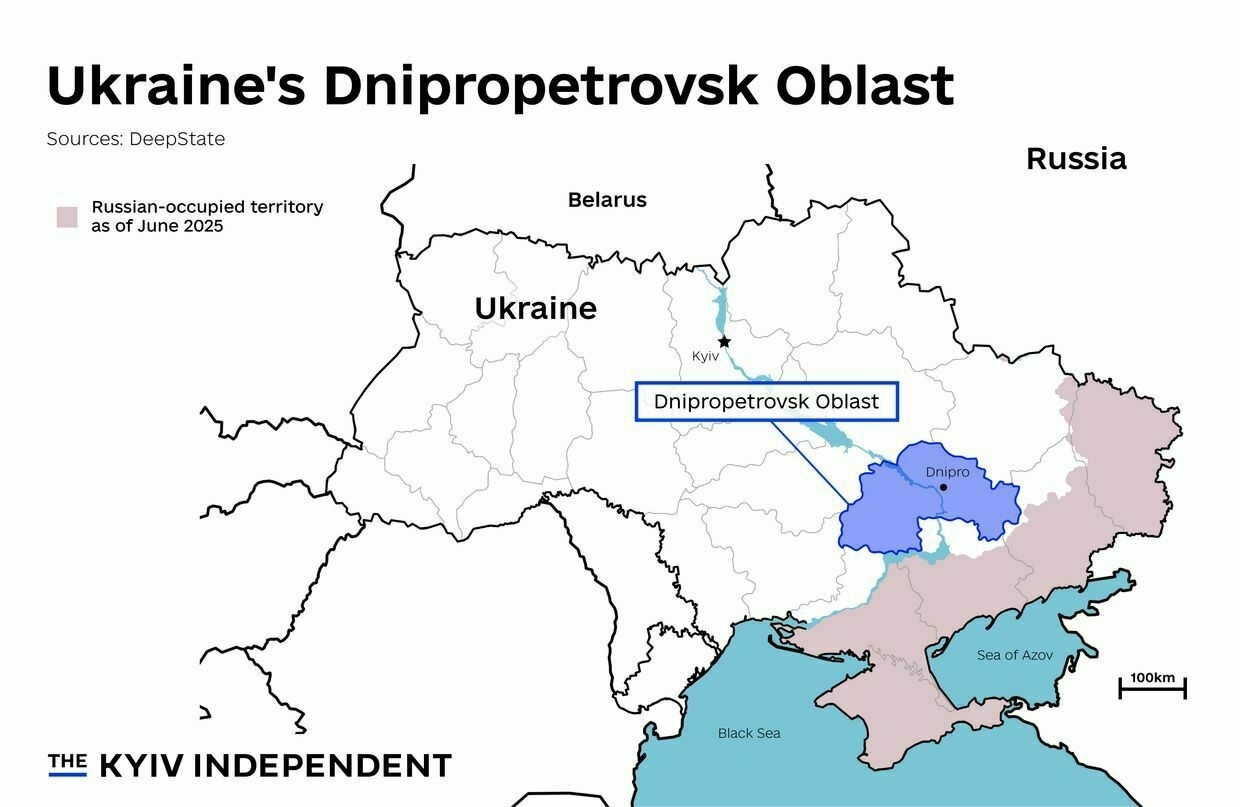
Ukraine’s Dnipropetrovsk Oblast (Nizar al-Rifai/The Kyiv Independent) “Therefore, the Russian propaganda about the seizure of the bridgehead in Dnipropetrovsk Oblast is not true. Dachne remains under the control of the Ukrainian Defense Forces,” the statement read.
The new claims echo a similar incident in May when Russian sources circulated a photo purporting to show Russian troops at the border of Dnipropetrovsk Oblast near the village of Novomykolaivka.
At the time, Ukrainian officials, including Dnipropetrovsk Oblast Governor Serhii Lysak, dismissed the photo as fake. The monitoring group DeepState later confirmed that the image had been taken in the village of Troitske in Donetsk Oblast and featured a Ukrainian vehicle abandoned under fire, which Russian forces later used for staged photos.
Russian forces have recently stepped up offensive operations across multiple sectors of the front line. Viktor Tregubov, spokesperson for Ukraine’s Khortytsia group of forces, said on June 16 that Moscow had increased attacks in the Novopavlivka sector.
Tregubov noted that the escalation near Novopavlivka indicates an effort to breach into Dnipropetrovsk Oblast. “But they have failed to succeed,” he said in a televised address.
Kremlin spokesperson Dmitry Peskov told Russian state-controlled media on June 9 that Russian forces were conducting operations in Dnipropetrovsk Oblast as part of efforts to create a so-called “buffer zone” on Ukrainian territory.
These remarks followed Russian President Vladimir Putin’s May 22 statement that Russia was working to establish a “security buffer zone” along the Ukrainian border regions of Kursk, Bryansk, and Belgorod.
5 ways you can support Ukraine — even if your government doesn’t want toEditor’s note: This is an edited version of a guide for members of the Kyiv Independent community, published on Feb. 24, 2025. If you would like to join a community of people united by wanting to help Ukraine, consider becoming a member today. U.S. President Donald Trump’s publicThe Kyiv IndependentBrooke Manning
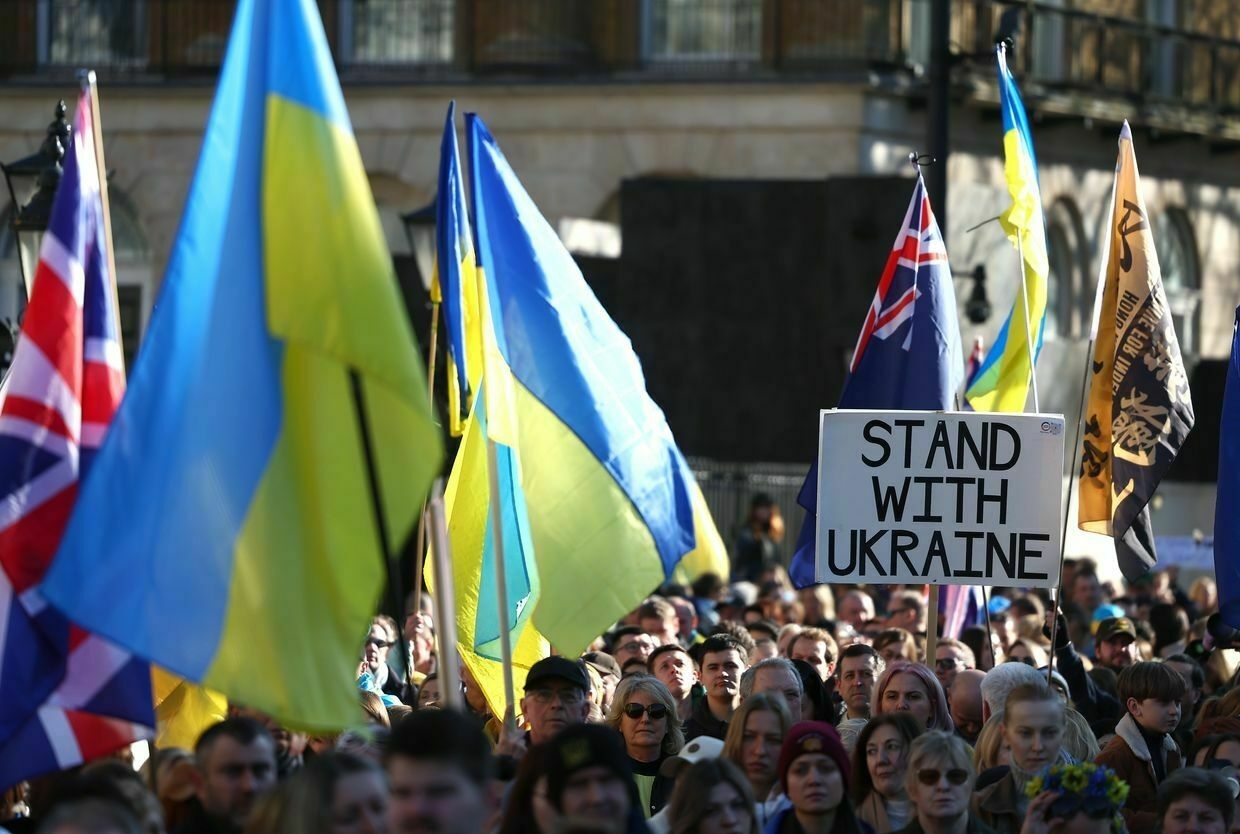
-
North Korea to send up to 30,000 more troops to aid Russia's war against Ukraine, CNN reports
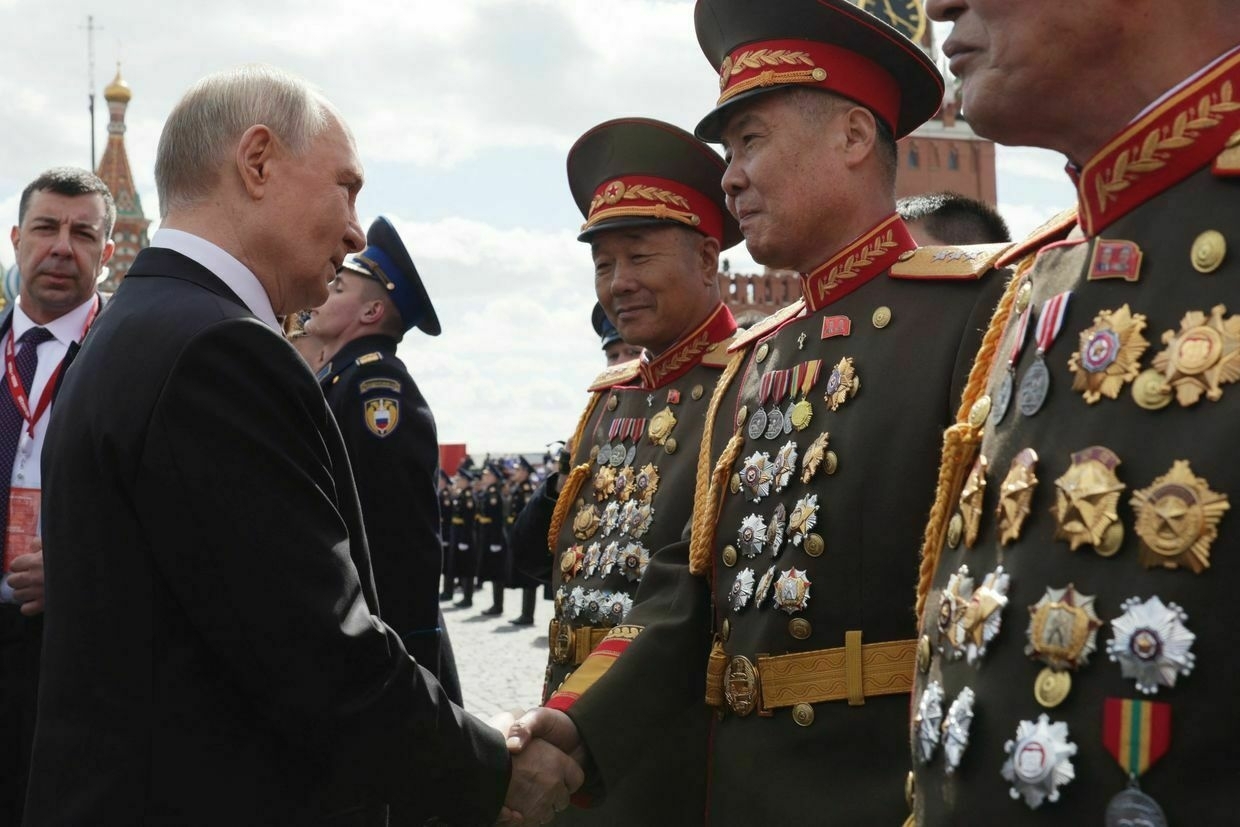
North Korea is preparing to set an additional 25,000-30,000 soldiers to join Russian forces fighting against Ukraine, almost thrice as many as were dispatched last year, CNN reported on July 2, citing undisclosed Ukrainian officials.
The fresh units may arrive in the coming months and are likely to be engaged in combat in Russian-occupied Ukrainian territories, including during “large-scale offensive operations,” according to a Ukrainian military intelligence (HUR) assessment reviewed by CNN.
The news underscores North Korea’s growing involvement in the Russia-Ukraine war and the deepening military ties between Pyongyang and Moscow.
North Korea initially dispatched around 11,000 soldiers to Russia in the fall of 2024 to help fend off a Ukrainian incursion into Russia’s Kursk Oblast. According to various estimates, North Korean soldiers suffered between 4,000 and 6,000 casualties during this deployment.
Ukraine’s HUR also noted signs that Russian military aircraft are being refitted to transport North Korean troops from their homeland across Russia’s Siberia, CNN reported. Satellite imagery detected a ship involved in last year’s deployment at a Russian port and a cargo aircraft at North Korea’s Sunan airport, according to the outlet.
Estimates reported by CNN exceed those of South Korea’s intelligence, which expects Pyongyang to send an additional 15,000 soldiers to Russia as early as July or August.
Following his visit to Pyongyang in June, Russian Security Council Secretary Sergei Shoigu also announced that North Korea would send 1,000 sappers and 5,000 military engineers to Russia’s Kursk Oblast.
Pyongyang’s assistance to Russia has not been limited to troops, with North Korea being a key source of artillery shells and ballistic missiles for Russian forces.
Russian President Vladimir Putin and North Korean dictator Kim Jong Un signed the Comprehensive Strategic Partnership Agreement in Pyongyang in June 2024. Under the treaty, the two countries pledged to provide aid to one another if either is attacked.
While the countries initially denied involvement of North Korean troops in the Russia-Ukraine war, both Putin and Kim acknowledged the deployment earlier this year.
Ukraine’s new interceptor UAVs are starting to knock Russia’s long-range Shahed drones out of the skyRussia’s Shahed drone swarms are pummeling Ukraine on a nightly basis, inflicting ever more death and destruction in cities that had managed to carve out some sense of normalcy amid wartime. Civilian alarm has grown. With traditional air defense stockpiles running low, the government is banking on newly createdThe Kyiv IndependentKollen Post
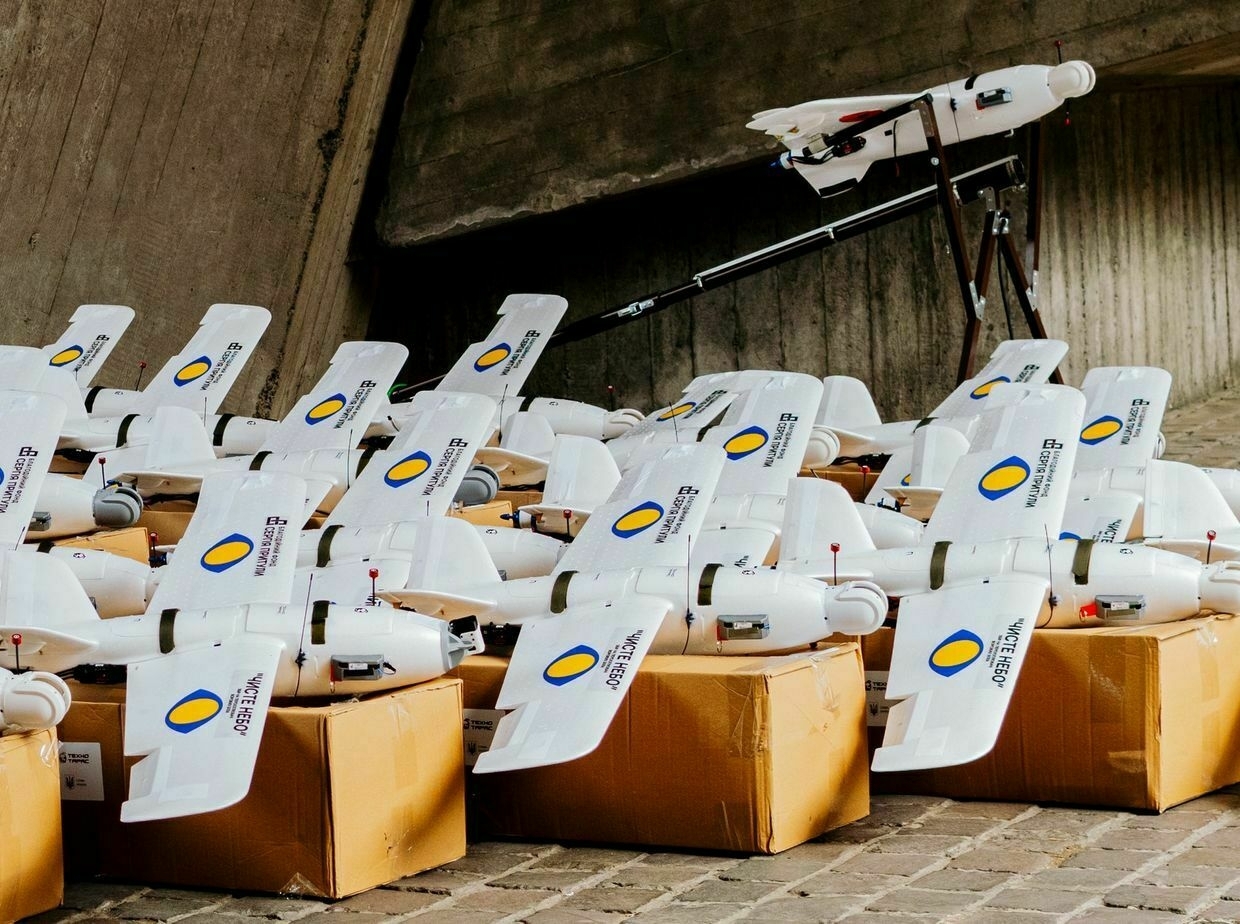
-
Ukrainian-founded Grammarly to acquire AI email app Superhuman

Grammarly, a company with Ukrainian roots, announced its intent to acquire AI email writing app Superhuman as part of its expansion into an AI productivity platform, the company said in a press release on July 1.
Grammarly is the most valuable company with Ukrainian roots, reaching $13 billion valuation as of 2021. Grammarly was founded in 2009 in Kyiv by Oleksii Shevchenko, Maksym Lytvyn, and Dmytro Lider.
According to Grammarly’s press release, email is Grammarly’s top use case, with the platform editing over 50 million emails weekly.
Superhuman is an AI email application that the company says helps users respond to emails faster and reduces time spent on email communications.
Users are already sending and responding to 72% more emails per hour after using Superhuman compared to the previous period, according to Grammarly.
“This is the future we’ve been building toward since day one: AI that works where people work, not where companies want them to work,” said Shishir Mehrotra, Grammarly’s CEO.
The acquisition follows Grammarly’s recent purchase of Coda, a productivity tool company. The combined platforms will allow users to work with multiple AI agents for different tasks within email communications.
Grammarly says that its service is used daily by over 40 million users, generating annual revenue of more than $700 million for the company.
As Russia ramps up missile attacks, US halts promised air defense shipments to UkraineAmong the items being held back from Ukraine are Patriot air defense missiles, precision artillery rounds, Hellfire missiles, and drones, three sources told Politico.The Kyiv IndependentAbbey Fenbert
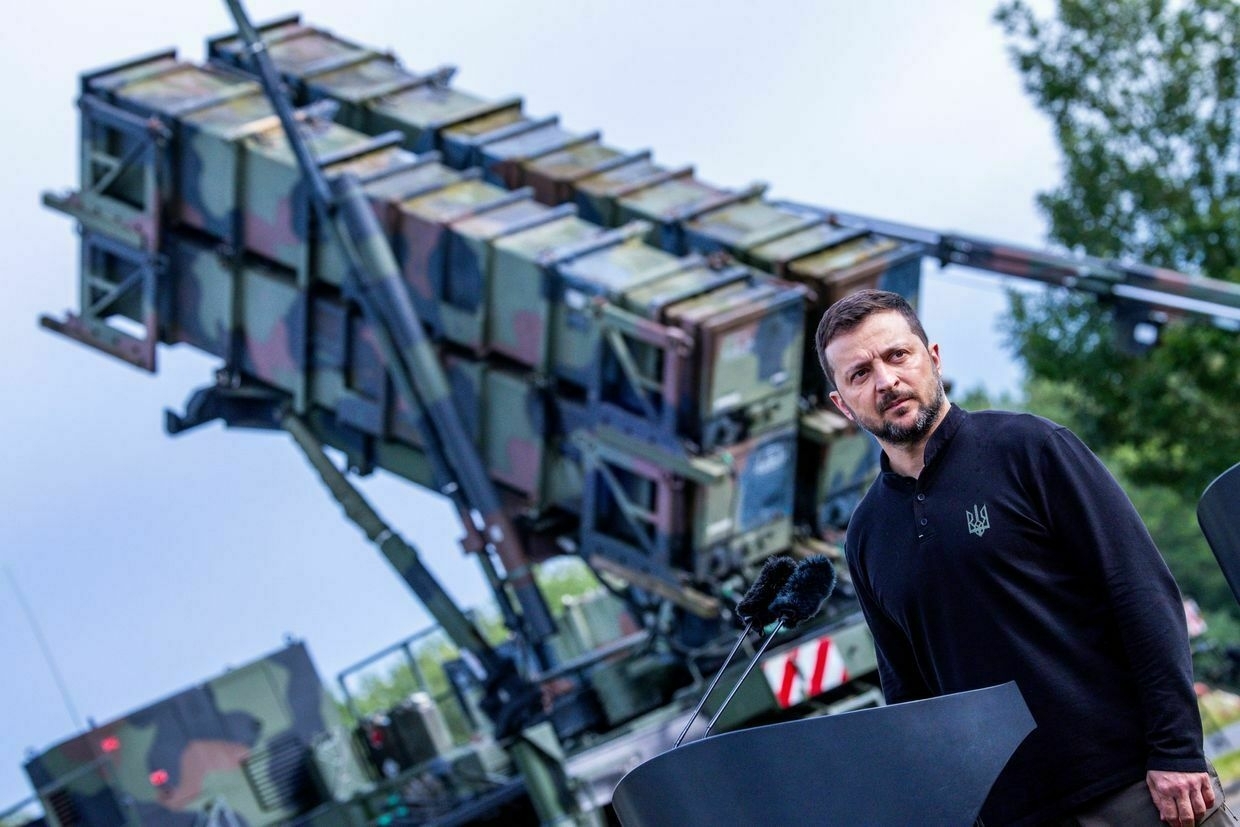
-
Ukraine's Deputy PM Chernyshov won't be dismissed despite corruption probe
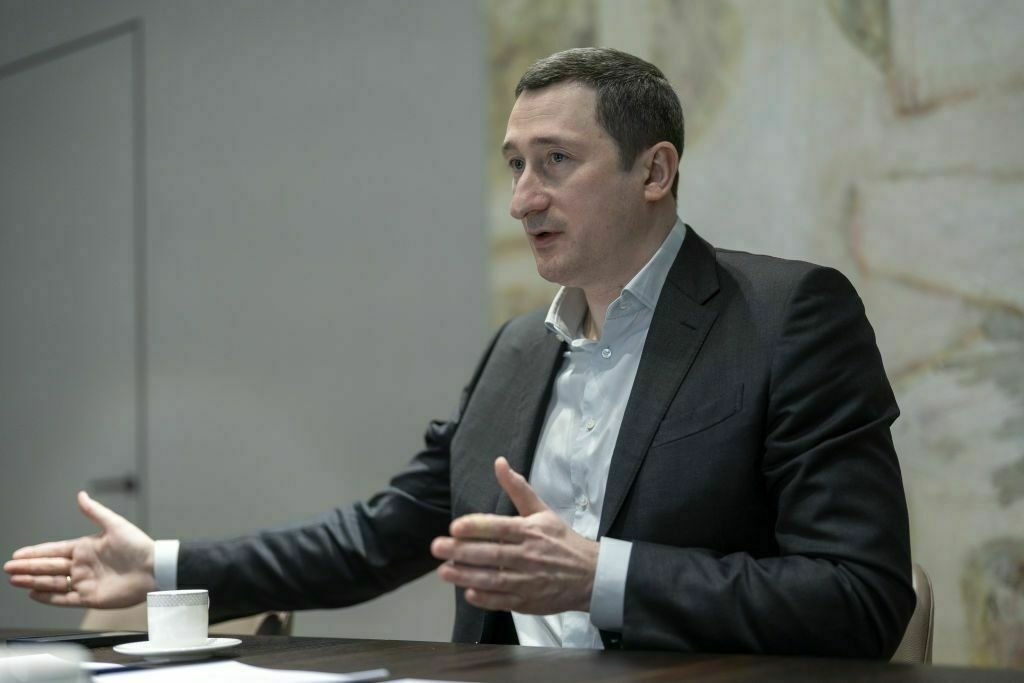
Deputy Prime Minister and National Unity Minister Oleksii Chernyshov will keep his position after a decision from the High Anti-Corruption Court on July 2, despite an ongoing corruption investigation.
Chernyshov is a suspect in a “large-scale” illegal land grab corruption case. After a court hearing on June 27, he was banned from traveling abroad without permission and slapped with a bail set at Hr 120 million ($2.9 million) while awaiting trial.
Previously, prosecutors filed a motion for his removal from his position after he told the Kyiv Independent that he denies the allegations and will not step down from his job.
Speaking to reporters after the court dismissed the motion for his removal, Chernyshov said he will “continue to work” and is collecting funds to pay the bail as his personal accounts are blocked. His defense has filed an appeal against the bail.
“I will obediently carry out everything the court decides,” he said.Chernyshov continues to deny the accusations and said that his reputation has been dealt “a serious blow.”
According to the National Anti-Corruption Bureau (NABU) investigation, during his time as communities and territories minister in 2020-2022, Chernyshov and his associates undervalued land plots to benefit a developer in exchange for kickbacks.
Chernyshov and his accomplices allegedly received “significant” discounts on apartments in existing buildings, totaling over Hr 14.5 million ($346,000), from the developer. The actions cost Ukraine Hr 1 billion ($24 million), according to NABU.
The case has been high profile in Ukraine as Chernshov is the highest-ranking official in Ukrainian history to face such charges while in office. He is also considered a close ally of President Volodymyr Zelensky, marking a major accusation against the president’s inner circle.
Chernyshov first raised eyebrows after he left the country on a business trip days before law enforcement unveiled the charges and detained two of his close associates. Despite suspicions that he had fled the country to avoid arrest, he returned to Ukraine on June 22 and was summoned to NABU the following day.
During the court hearing, NABU and the Specialized Anti-Corruption Prosecutor’s Office (SAPO) requested that Chernyshov be suspended from office and that the court set bail of Hr 120 million ($2.9 million).The two offices also requested additional measures restricting his movements, including that he hand in his passport and wear an electronic monitoring device.
The court granted the prosecutors’ request for bail and banned him from leaving the country without permission, but did not remove him from office.
Since December last year, Chernyshov has headed the newly formed National Unity Ministry, which aims to strengthen ties with the Ukrainian diaspora and non-governmental organizations overseas.Top Russian defense official gets 13 years in graft crackdownAuthorities detained former Russian Deputy Defense Minister Timur Ivanov in April 2024 on bribery allegations, later adding embezzlement charges in October.The Kyiv IndependentOlena Goncharova
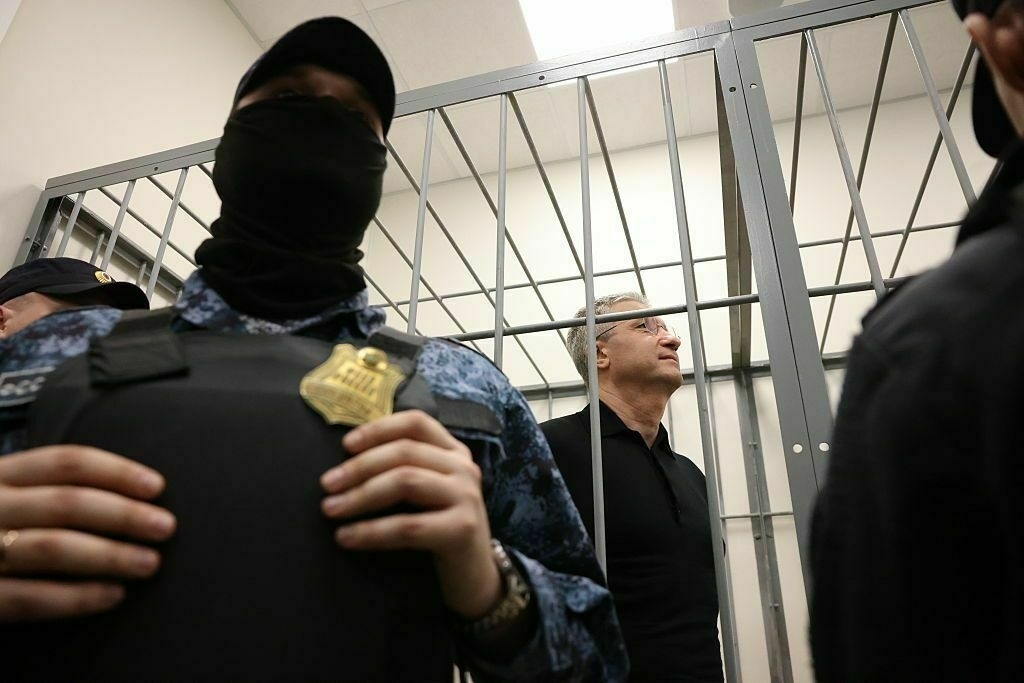
-
Ukraine says it wasn't officially informed of US weapons shipment halt
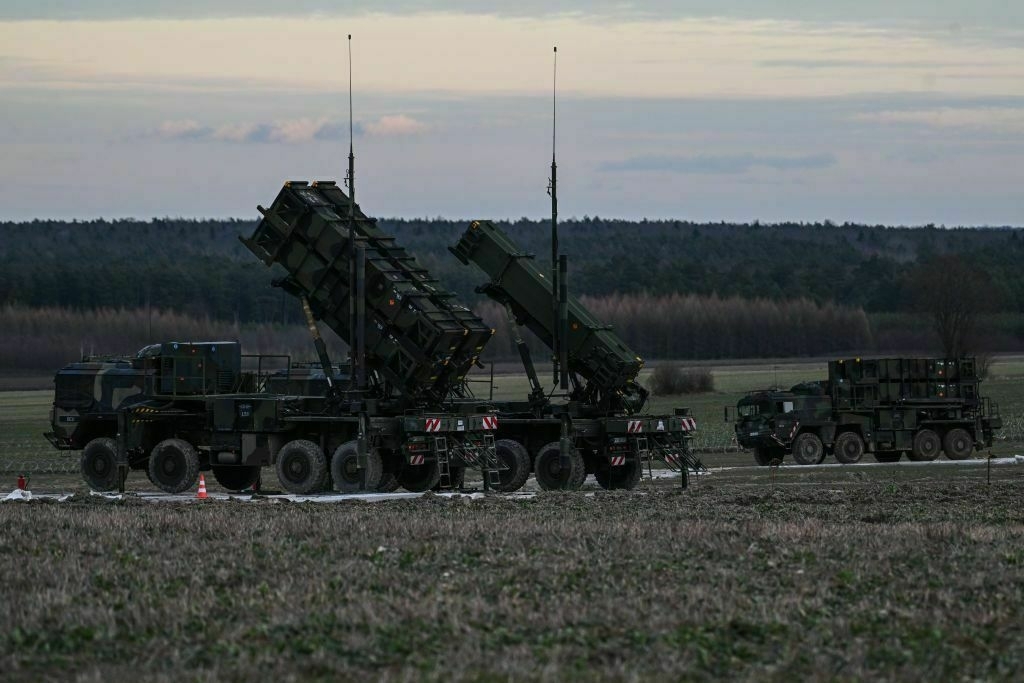
Editor’s note: The story is being updated.
Ukraine has not received any official notification from the United States about suspension or rescheduling of previously approved military aid packages, the Defense Ministry said on July 2, following media reporting that Washington had paused some weapons deliveries.
In a statement, the ministry said it is working to verify the current status of all elements in the agreed aid packages and has requested a phone call with U.S. defense officials for further clarification.
“Ukraine has not received official notices regarding the suspension or revision of the delivery schedules of agreed defense assistance,” the statement read. “We proceed based on verified facts and are reviewing each item in the supply chain."
Politico reported that the U.S. Defense Department has paused shipments of key air defense and precision munitions to Ukraine over concerns about declining U.S. stockpiles.
Among the withheld items are Patriot air defense missiles, precision artillery rounds, Hellfire missiles, and other munitions used by Ukraine’s F-16 fighter jets.
The White House confirmed the decision, saying it was part of a broader reassessment of American military aid to foreign partners.
"(The decision) was made to put America’s interests first following a DOD review of our nation’s military support and assistance to other countries across the globe,” White House Deputy Press Secretary Anna Kelly said in a statement.
Ukraine’s Foreign Ministry summoned U.S. Charge d’Affaires John Ginkel on July 2 to voice concern over the reported pause in weapons shipments.
Deputy Foreign Minister Mariana Betsa warned during the meeting that “any delay or hesitation in supporting Ukraine’s defense capabilities will only encourage Russia to continue war and terror, rather than pursue peace."
The Kremlin has welcomed the reported move, with its spokesperson, Dmitry Peskov, saying that “the fewer weapons that are supplied to Ukraine, the closer the end of the (war)."
The move comes as Ukraine faces intensifying Russian attacks. In June, Russia launched a record 5,337 Shahed-type attack drones at Ukrainian targets, the highest monthly total since the start of the full-scale invasion in February 2022.
The U.S. did not approve any new military aid packages after President Donald Trump took office in January. Defense Secretary Pete Hegseth has also signaled that future U.S. defense budgets will reduce the scale of assistance to Ukraine.
Military aid delays will ‘encourage Russia to continue war,’ Ukraine tells US envoyUkraine warned that “any delay or hesitation in supporting Ukraine’s defense capabilities will only encourage Russia to continue war and terror, rather than pursue peace.” The Kyiv IndependentMartin Fornusek
The Kyiv IndependentMartin Fornusek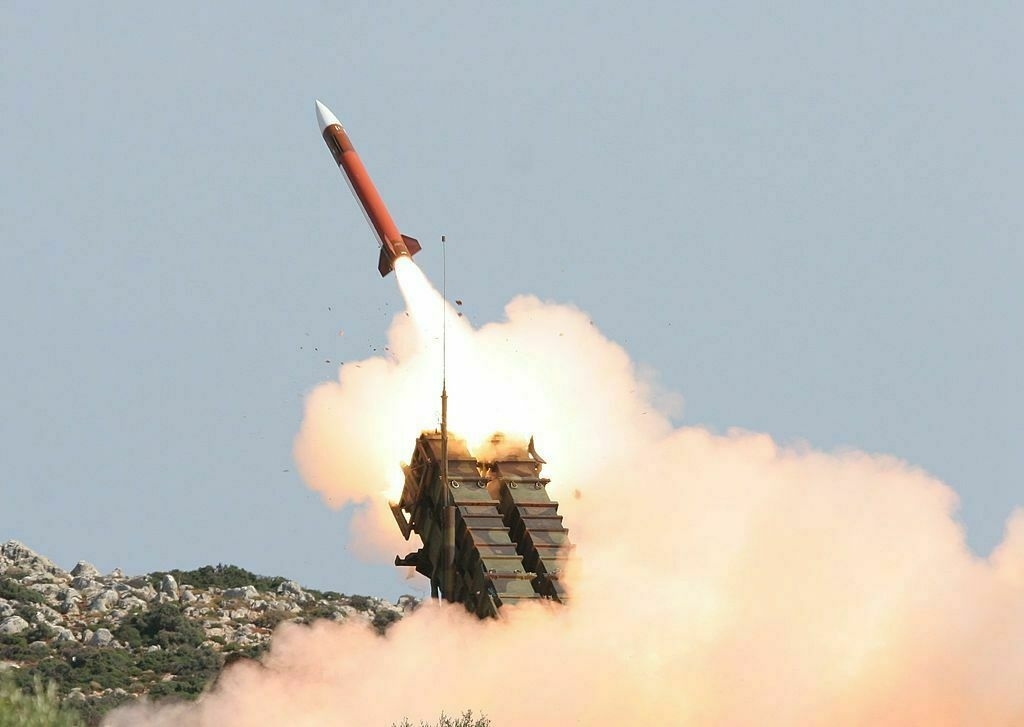
-
Kremlin welcomes reported pause in US arms shipments to Ukraine, says it brings war's end closer
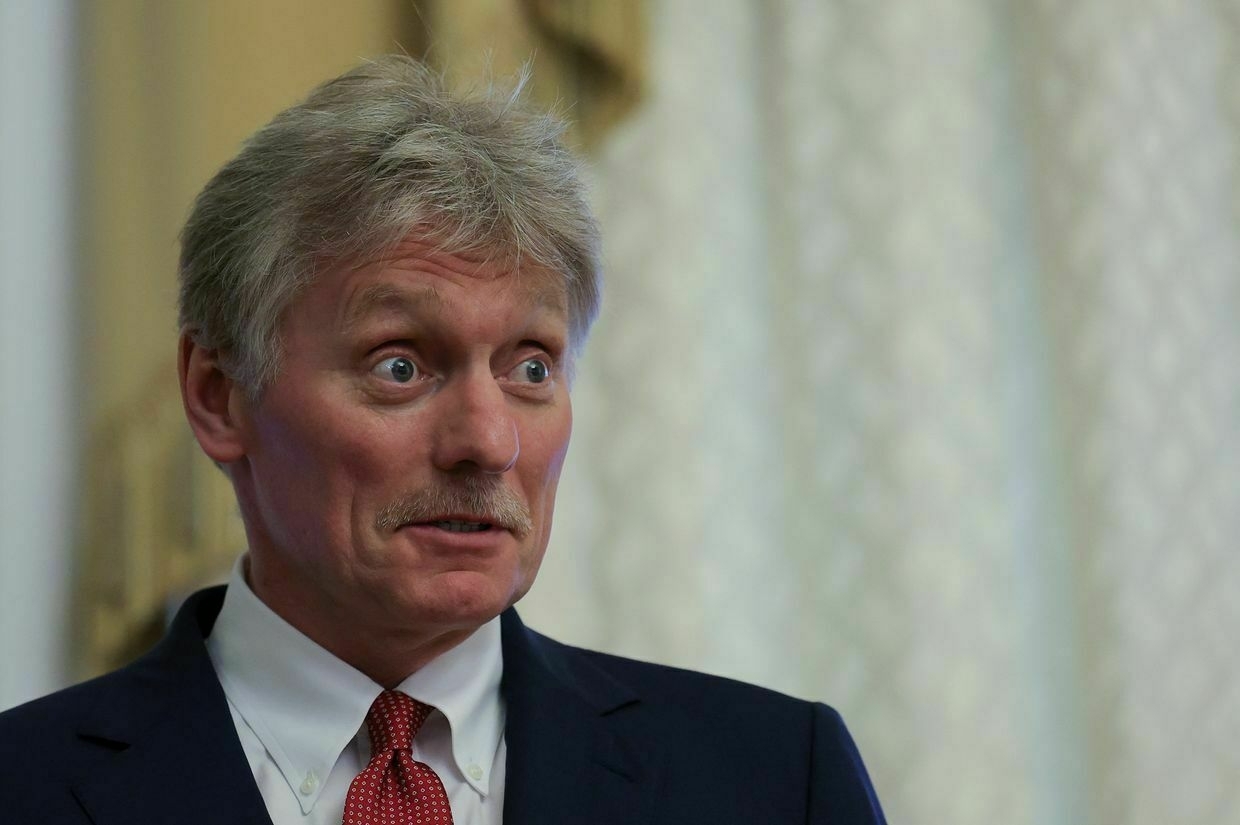
The United States' reported decision to suspend some arms deliveries to Ukraine could help bring Russia’s war in Ukraine to an end, the Kremlin said on July 2, according to Russian state-controlled media.
“The fewer weapons that are supplied to Ukraine, the closer the end of the… (Russia-Ukraine war),” Kremlin spokesperson Dmitry Peskov told reporters.
Peskov’s comments came after Politico reported that the U.S. Defense Department has paused shipments of key air defense and precision munitions to Ukraine over concerns about declining U.S. stockpiles.
Among the withheld items are Patriot air defense missiles, precision artillery rounds, Hellfire missiles, and other munitions used by Ukraine’s F-16 fighter jets.
Ukraine’s Foreign Ministry summoned U.S. Charge d’Affaires John Ginkel on July 2 to voice concern over the reported pause in weapons shipments.
Deputy Foreign Minister Mariana Betsa warned during the meeting that “any delay or hesitation in supporting Ukraine’s defense capabilities will only encourage Russia to continue war and terror, rather than pursue peace."
According to Politico, Pentagon policy chief Elbridge Colby ordered the halt in June following a review of U.S. ammunition levels. The White House confirmed the decision, saying it was part of a broader reassessment of American military aid to foreign partners.
"(The decision) was made to put America’s interests first following a DOD review of our nation’s military support and assistance to other countries across the globe,” White House Deputy Press Secretary Anna Kelly said in a statement.
The move comes as Ukraine faces intensifying Russian attacks. In June, Russia launched a record 5,337 Shahed-type attack drones at Ukrainian targets, the highest monthly total since the start of the full-scale invasion in February 2022.
The U.S. has not approved any new military aid packages after U.S. President Donald Trump took office in January. Defense Secretary Pete Hegseth has also signaled that future U.S. defense budgets will reduce the scale of assistance to Ukraine.
At a NATO summit in The Hague in late June, Trump said Washington was considering whether it could help provide more Patriot missiles to Kyiv but emphasized that U.S. and Israeli needs take precedence.
“They are very hard to get. We need them too,” Trump said after meeting with President Volodymyr Zelensky.
The Kremlin has long argued that Western arms shipments to Ukraine only prolong the conflict and raise the risk of escalation, while continuing to attack Ukrainian cities and advance on the battlefield.
Smashing previous monthly record, Russia launches 5,337 kamikaze drones against Ukraine during JuneRussia launched a record 5,337 Shahed-type drones against Ukraine in June, according to data from the Ukrainian Air Force and Dragon Capital, smashing the previous record of 4,198 set in March. Russia’s bombardments, a fact of life after three years of full-scale war, have intensified dramatically in MayThe Kyiv IndependentYuliia Taradiuk
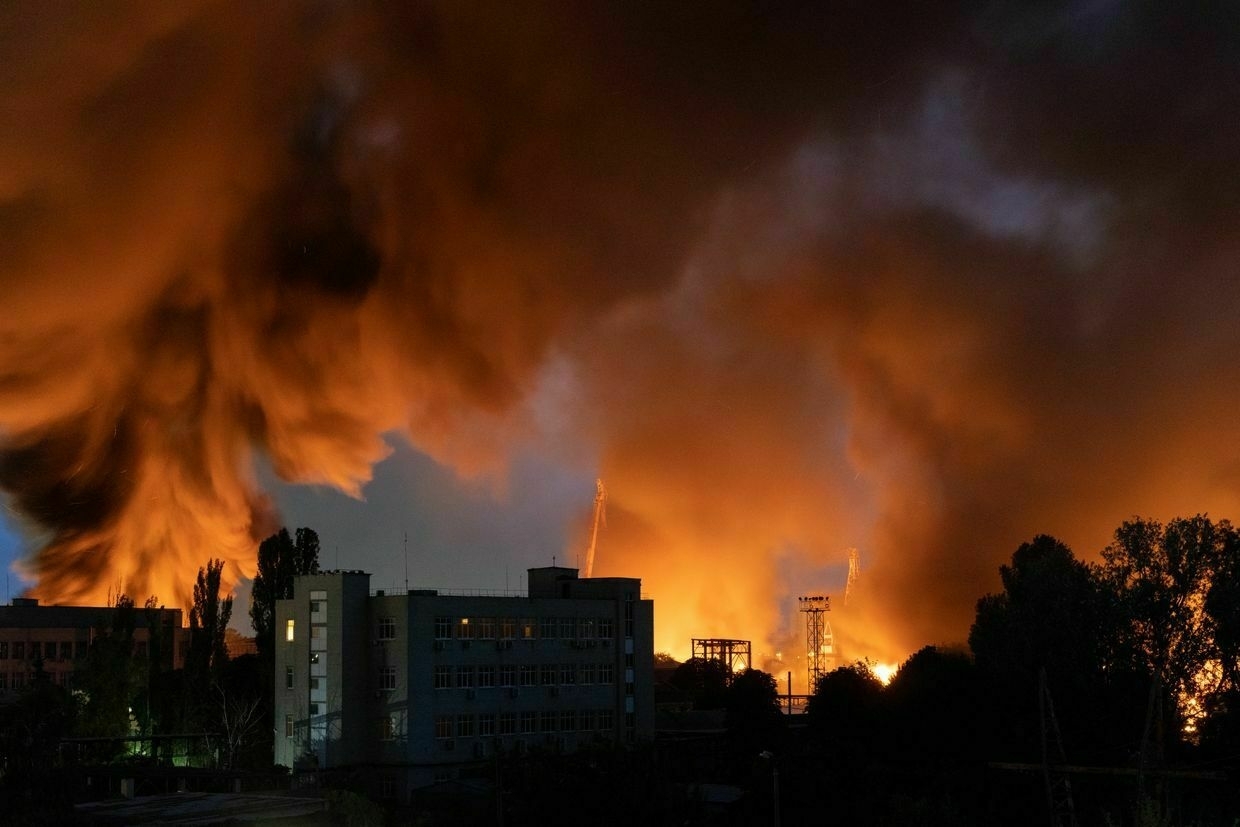
-
Armenian parliament speaker urges ban on Russian TV broadcasting

Armenian authorities should “seriously” consider banning the broadcast of Russian television channels in Armenia, Armenian Parliament Speaker Alen Simonyan said on July 1, citing concerns over interference and deteriorating ties.
“We must very seriously discuss the suspension of the Russian television channel broadcast in the territory of Armenia,” Simonyan told reporters, according to Armenpress. He criticized recent content aired by Russian state broadcasters, which the Armenian government has denounced as harmful to bilateral ties.
The remarks come as Armenia continues to pivot away from Moscow’s sphere of influence and seeks to bolster ties with the West.
Simonyan suggested that individuals connected to Armenian-Russian oligarch Samvel Karapetyan may be financing efforts to meddle in Armenia’s internal matters.
“If there are channels that allow themselves to interfere in Armenia’s domestic affairs, perhaps we ought to respond likewise, by at least banning their entry into the homes of our society,” he said.
Tensions between Armenia and Russia have mounted since Moscow’s failure to intervene during Azerbaijan’s military operation in Nagorno-Karabakh in September 2023, which resulted in the mass displacement of ethnic Armenians.
In April, Armenian President Vahagn Khachaturyan signed a law initiating the country’s formal accession process to the European Union.
Though symbolic, the legislation marks a significant political shift, embedding European integration into Armenian law. The bill, passed by parliament in March, was backed by 64 lawmakers and opposed by seven.
Armenian Prime Minister Nikol Pashinyan has said that EU membership would require a referendum, while the Kremlin warned that joining both the EU and the Russian-led Eurasian Economic Union (EAEU) is “simply impossible.” The EAEU, established in 2015, includes Russia, Belarus, Kazakhstan, Armenia, and Kyrgyzstan.
Why Norway is investing billions in Ukraine’s victoryThe Kyiv Independent’s Oleksiy Sorokin sat down with Eivind Vad Petersson, state secretary to the Norwegian foreign minister and co-chair of the joint Norwegian-Ukrainian Working Group on Nuclear Safety and Security.The Kyiv IndependentOleksiy Sorokin
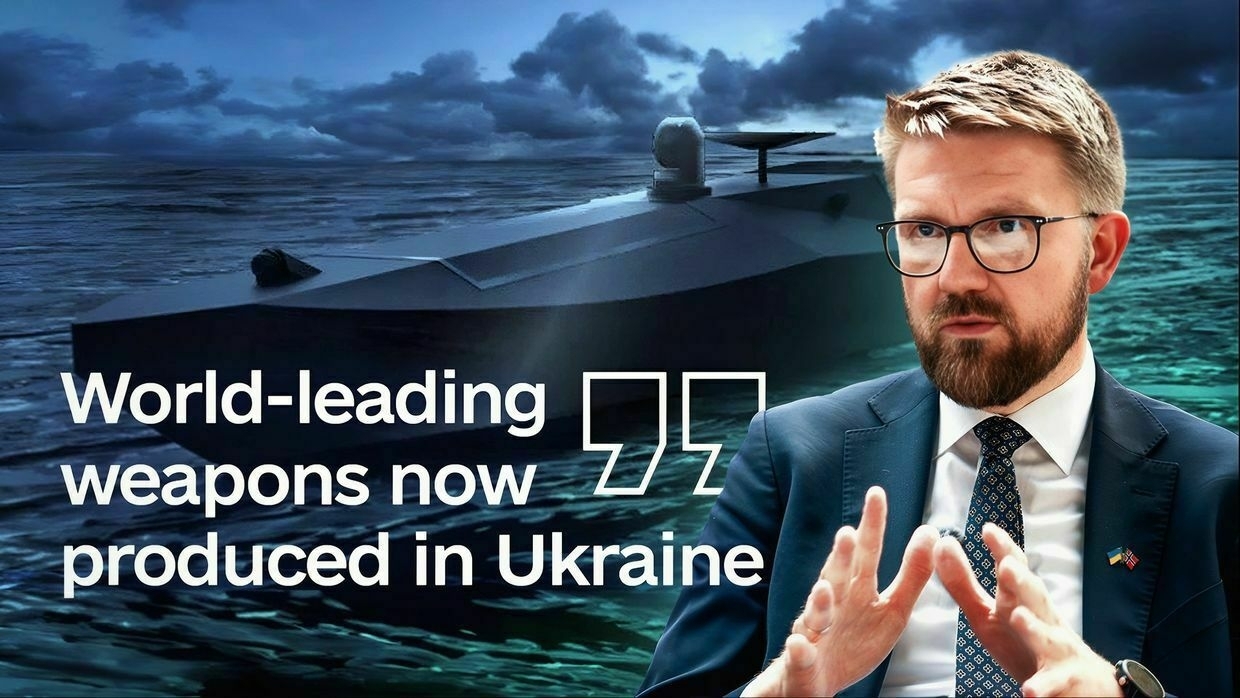
-
Military aid delays would 'encourage Russia to continue war,' Ukraine tells US envoy
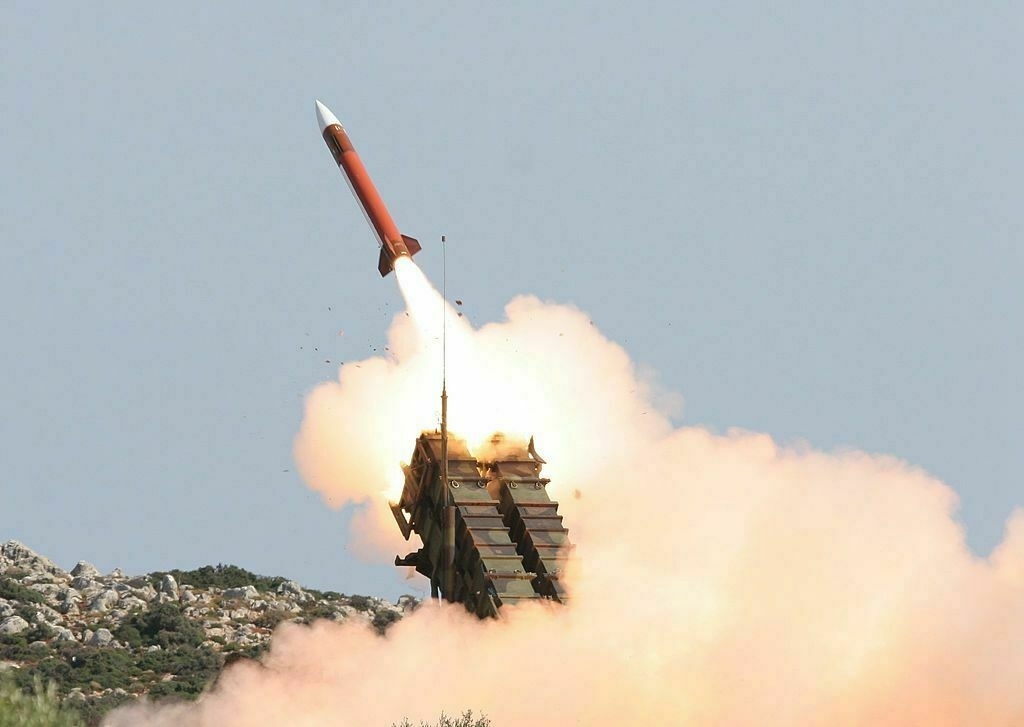
The Ukrainian Foreign Ministry told U.S. Charge d’Affaires John Ginkel that delays in U.S. military aid would only prolong the war, the Foreign Ministry said on July 2 after the Pentagon reportedly paused some weapons shipments.
Ginkel met Deputy Foreign Minister Mariana Betsa at the request of Ukraine’s chief diplomat, Andrii Sybiha.
During the meeting, the Ukrainian side warned that “any delay or hesitation in supporting Ukraine’s defense capabilities will only encourage Russia to continue war and terror, rather than pursue peace."
The meeting came against the backdrop of the U.S. media reporting that the U.S. Defense Department had paused some of the previously allocated shipments of air defense ammunition and other weapons to Kyiv amid a review.
White House spokesperson Anna Kelly later confirmed the move, saying that the decision “was made to put America’s interests first following a (Defense Department) review of our nation’s military support and assistance to other countries across the globe."
According to the Ukrainian Foreign Ministry’s readout, Betsa underscored Ukraine’s gratitude for U.S. aid and stressed the critical importance of continued deliveries, namely air defenses.
The Ukrainian diplomat also noted that Russia continues to reject a U.S.-proposed ceasefire that Kyiv agreed to during talks in Jeddah on March 11 and only intensifies its aerial attacks and ground offensives against Ukraine.
“Ukraine supports peace efforts and supports the U.S. calls for an immediate end to the killings and the war, stressing the need to compel Russia to seek peace,” the Foreign Ministry said in a statement.
“Under these circumstances, strengthening Ukraine’s defense capabilities and ramping up coordinated transatlantic pressure on Russia are critically important."
The aid pause comes in a critical moment as Russia is ramping up its aerial strikes across Ukraine and intensifying offensive operations along the front line.
The Trump administration has yet to approve any new major aid package for Ukraine and revealed plans to reduce military assistance in next year’s budget. The pause comes despite U.S. President Donald Trump recently signaling support for further Patriot supplies to Kyiv.
Ukraine’s new interceptor UAVs are starting to knock Russia’s long-range Shahed drones out of the skyRussia’s Shahed drone swarms are pummeling Ukraine on a nightly basis, inflicting ever more death and destruction in cities that had managed to carve out some sense of normalcy amid wartime. Civilian alarm has grown. With traditional air defense stockpiles running low, the government is banking on newly createdThe Kyiv IndependentKollen Post
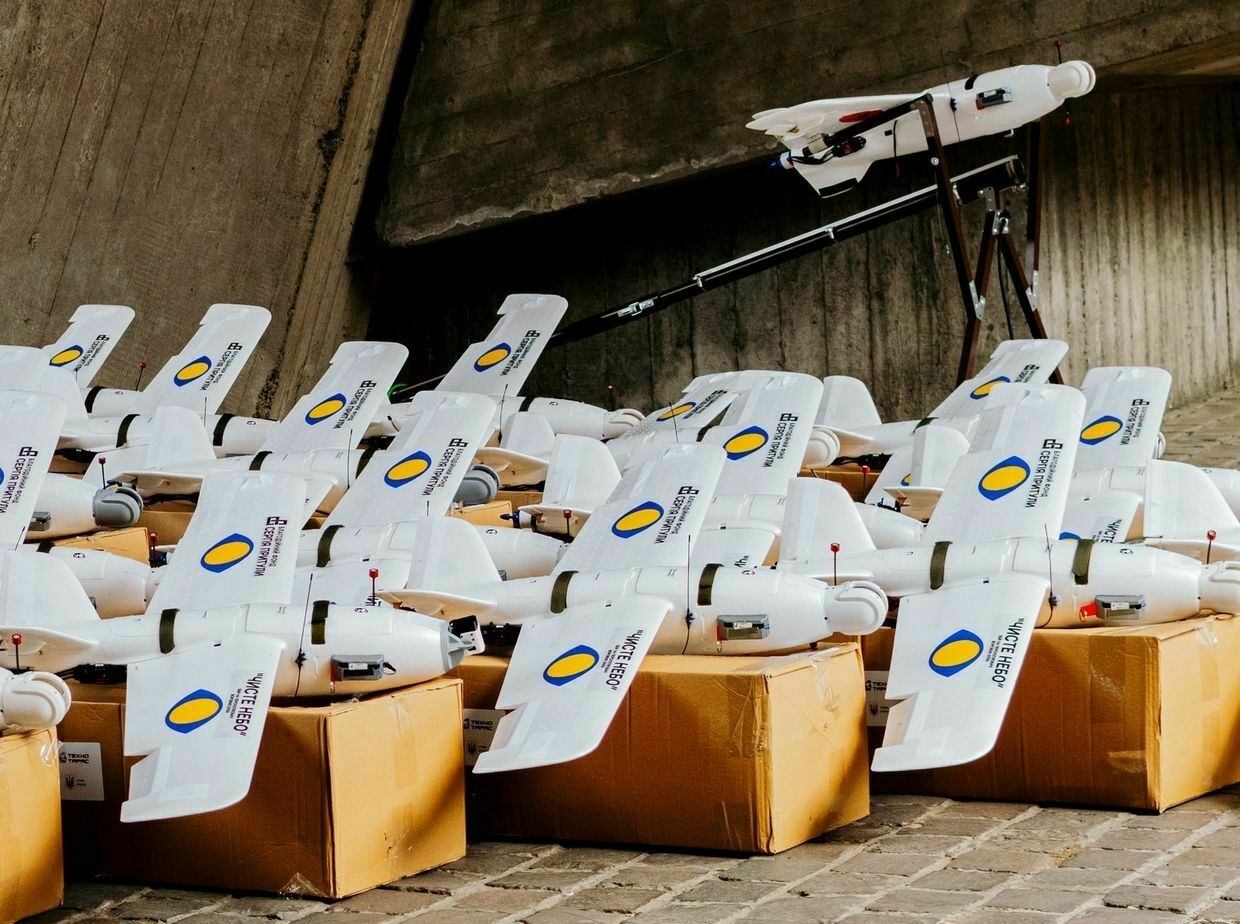
-
Ukrainian Migrants: Spending, Employment, and Impact on Host Country Economies
Because of Russia’s full-scale war against Ukraine, millions of Ukrainians are living abroad. They are gradually finding employment, and their spending via payment cards of Ukrainian banks is decreasing. Via payment of taxes, insurance contributions, and significant consumer demand, our citizens are supporting the economies of recipient countries, primarily Poland, Czechia, and Slovakia. In this article, we talk about the latest trends in migration: from the motivation behind choosing a country of residence to the contribution migrants make to the economies of partner countries.
Number of Ukrainian Migrants
Chart 1. Number of Migrants Since the Start of the Full-Scale Invasion, million people
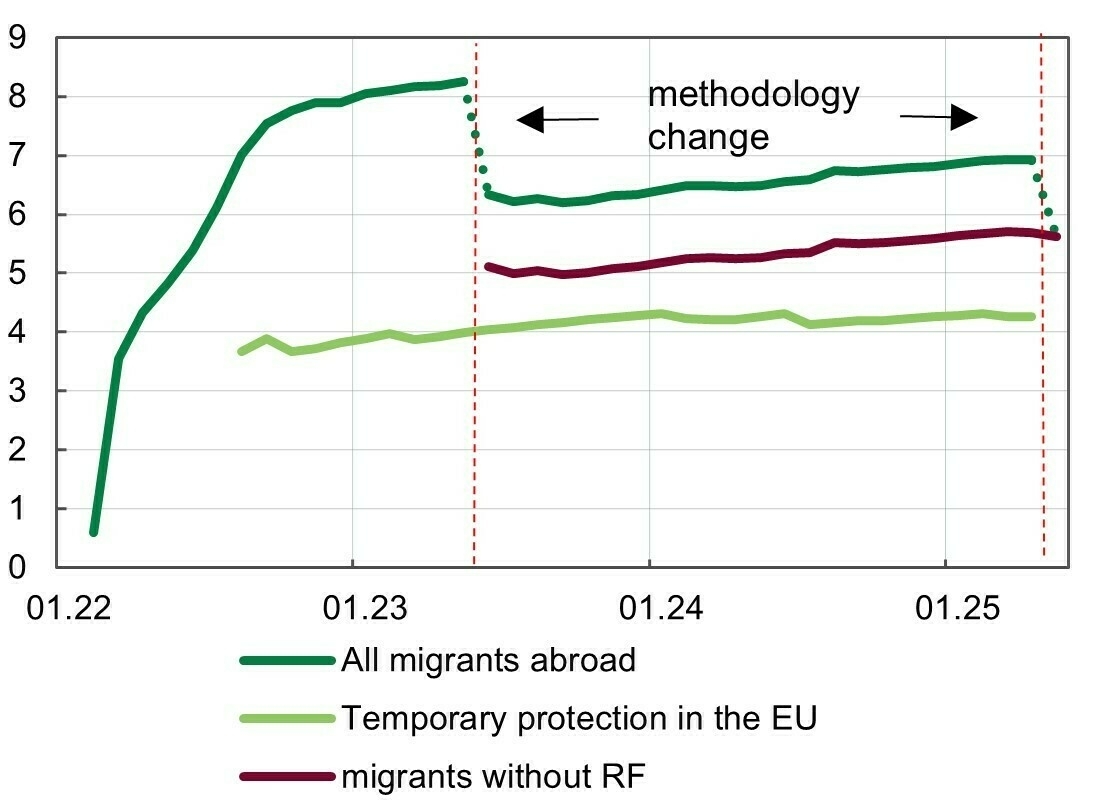
Source: UNHCR, Eurostat
Note. Since the beginning of Russia’s full-scale invasion of Ukraine, the UN has been publishing statistics on the number of Ukrainians who were forced to leave the country because of the war. From February 2022 to May 2023, the estimate was based on statistics of border crossings by migrants. In June 2023, the UN revised its approach: since then the estimate is based on the number of migrants holding temporary protection status (or a similar status) according to reports from recipient countries. Although the net number of border crossings was 8.9 million, the UN’s estimate of the total number of migrants decreased from 8.2 million to 6.3 million—mainly due to a reduction in the number of migrants in Russia and Belarus from 2.9 million to 1.3 million. The UN did not apply the updated approach to previously published data, which makes it impossible to compare the new data with the old one. In May 2025, the UN revised its methodology a second time—excluding data on 1.2 million Ukrainians located in Russia. These include Ukrainians who are in Russia under statuses other than refugee or temporary protection. The Russian government had reported them as refugees from Ukraine (this number may also include individuals forcibly deported to Russia) and had not updated the data since June 2023. The change in the UN’s approach in May 2025 again led to a significant decrease in the total number of refugees. According to the latest UN data, only 7,000 individuals currently hold temporary protection status in Russia.
Chart 2. Number of Ukrainian Migrants in Selected EU Countries with Temporary Protection Status at End of Period, thousand people
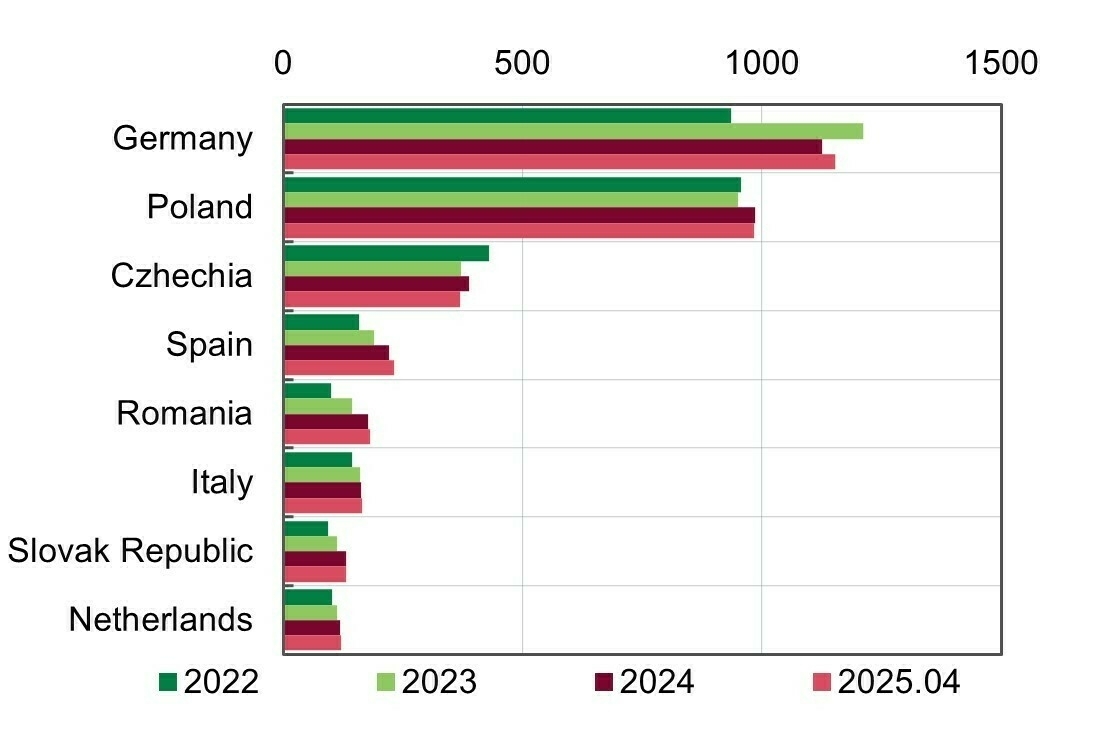
Source: Eurostat
According to the UN, as of the end of May 2025, 5.62 million Ukrainian migrants were residing abroad due to the war (excluding those located in Russia). Of these, as of May 2025, 4.2 million held temporary protection status in the EU, according to the latest available Eurostat data. According to Eurostat, the largest numbers of such statuses were granted by Germany (nearly 1.2 million people), Poland (987,000 people),
Czechia (371,000 people), and Spain (236,000). More than 100,000 Ukrainians are registered in each of the following countries: Romania, Italy, Slovakia, the Netherlands, and Ireland. A REACH survey conducted in 2022 at the Polish border showed that the main factors influencing the choice of destination country were: family or friends at the country of destination (39%), proximity to Ukraine (31%), and advice received at reception centers (17%).
However, over time, macroeconomic conditions, labor market conditions, and the volume of social support in recipient countries began to play a more important role in migrants’ choice of host countries. In particular, higher social support was the reason for relocation of some migrants from Poland to Germany.
According to a UNHCR survey conducted at the beginning of the full-scale invasion, 87% of migrants were women with children, and 65% of those women were of working age (18-59 years old). About 70% of surveyed migrants have higher education.
At the same time, according to the Centre for Economic Strategy, the number of men among migrants has been increasing recently, and some of the migrants are quasi-labor migrants who left the country not only because of the war, but also for work. As a result, more and more migrants are becoming employed, with their incomes recovering nearly to the level of before the full-scale invasion.
Migrants are placing less and less strain on the social protection systems of recipient countries, while their role in these countries’ economies is growing—both due to active participation in local labor markets and because of high volumes of consumer spending.
Using Ukrainian Payment Cards Abroad and Results of the Third Wave of the Banks’ Survey
As the employment rate of Ukrainian migrants increases, their spending abroad using Ukrainian cards continues to decline. In the first quarter of 2025, the average monthly volume of transactions at retail outlets amounted to USD 485 million (USD 550 million during 2024 and USD 157 million in 2021). Since March 2023, the decline in the volume of cash withdrawals abroad has slowed. In the first quarter of 2025, the average monthly volume of cash withdrawals amounted to about USD 130 million (USD 155 million during 2024 and USD 40 million in 2021) — see Chart 3.
Chart 3. Selected Transactions with Ukrainian Banking Cards Abroad, USD million

Source: NBU
In April 2025, the NBU conducted another round of surveys with six Ukrainian banks (PrivatBank, Universal Bank, PUMB, Raiffeisen Bank, Oschadbank, and Ukrsibbank) regarding the use of Ukrainian payment cards abroad (Chart 5). The current survey results cover the period from March 2022 to March 2025. The coverage rate of the third wave is 82% for cash withdrawals and 80% for transactions at retail outlets.
The results of the third wave of the survey showed the following:
- The largest volumes of transactions using Ukrainian payment cards abroad, as before, were recorded in Poland and Germany. At the same time, spending by Ukrainians in a given host country is not proportional to their numbers there, which may be explained by the availability and amount of social benefits, as well as the employment level among Ukrainian migrants. In particular, about 20% of Ukrainian migrants reside in Germany, while in the first quarter of 2025, only 10% of the total value of card transactions was recorded there (see Chart 4).
Chart 4. Geographic Breakdown of Migrants and Their Spending at Retail Outlets, % (Top 13 Countries = 100)

Source: UNHCR, NBU survey
- Despite a certain decline, overall migrant spending at retail outlets abroad remains high. The geographic structure of spending has remained relatively stable since the beginning of the full-scale invasion. About 20% of total spending takes place in Poland, 10% in Germany, and 8% in Spain (see Chart 6).
Chart 5. Transactions with Ukrainian Banking Cards Abroad (Based on Data from Six Banks), USD million
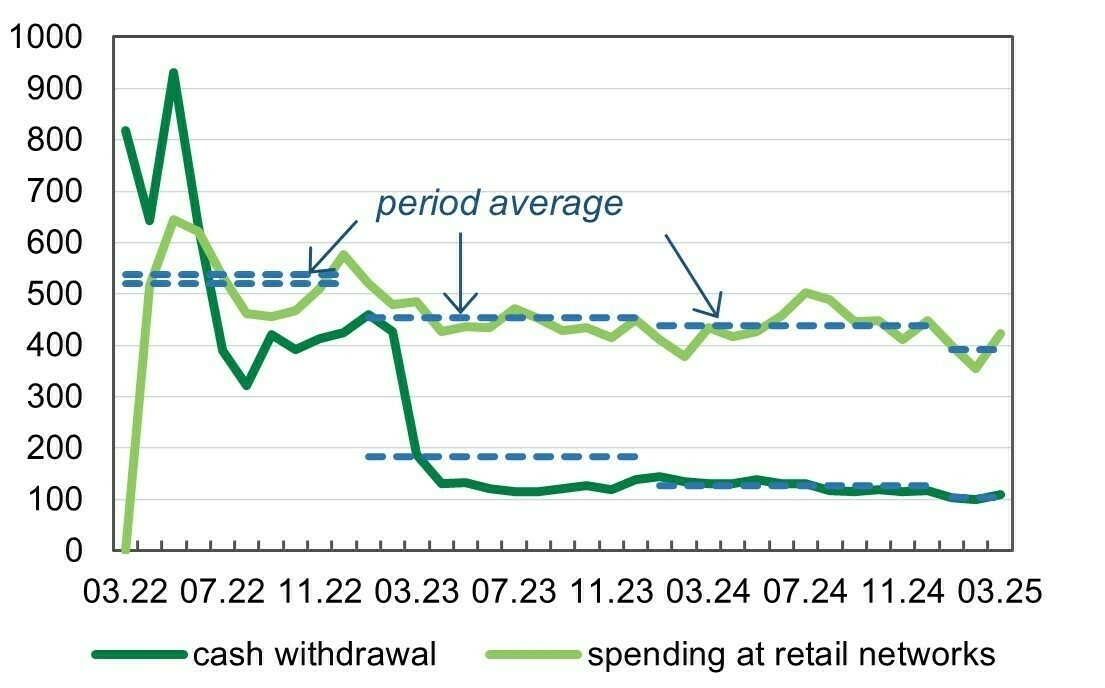
Source: NBU survey
Chart 6. Geographic Breakdown of Migrant Spending at Retail Outlets, % (Top 10 Countries = 100%)
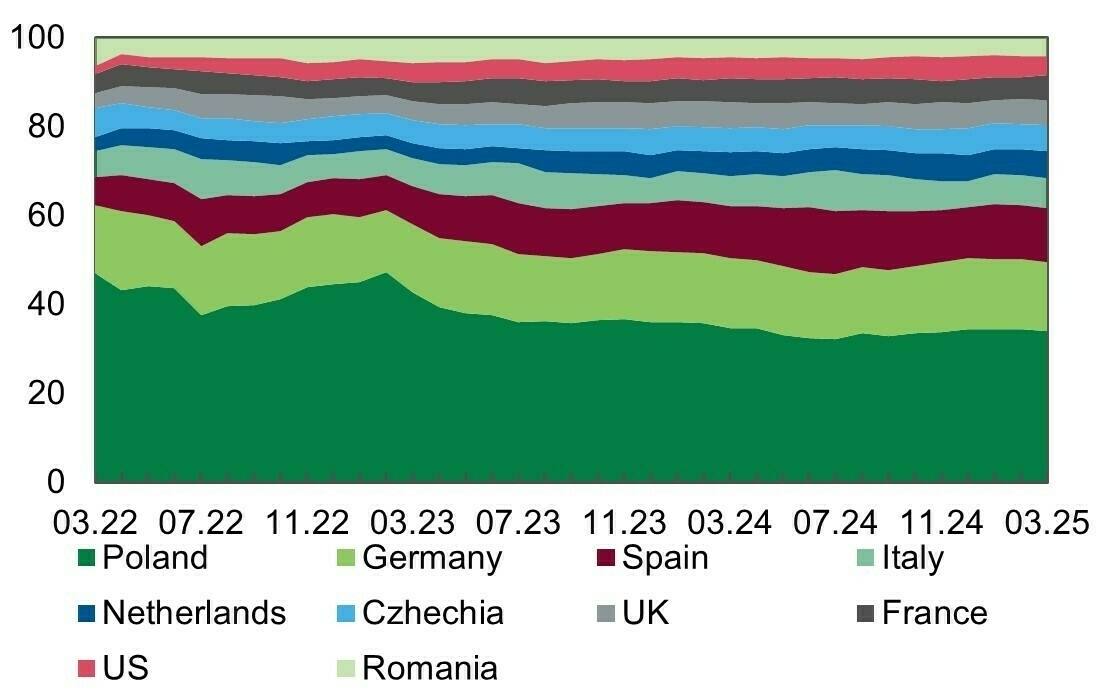
Source: NBU survey
- Due to enhanced effectiveness of financial monitoring measures and foreign exchange supervision, as well as a narrowing of the gap between the official and cash exchange rates, the volume of cash withdrawals abroad declined significantly in 2023 and has remained stable since July 2023. Compared to 2021, this level is still significantly higher: in 2021, the average monthly volume of cash withdrawals was USD 40 million, whereas in the first quarter of 2025 it reached USD 130 million (see Chart 3).
Chart 7. Structure of Cash Withdrawals Abroad, % (Top 10 Countries = 100%)

Source: NBU survey
Employment of Ukrainian Migrants Abroad
Ukrainians are increasingly finding employment abroad. According to the SEIS survey, in 2024 the employment rate of Ukrainian migrants rose significantly compared to 2023 in most countries and increased by 9 percentage points at the regional [1] level — to 64%. This figure is now only 7 percentage points lower than the equivalent weighted average for the population of host countries (71%). Taking into account the decrease in overall unemployment, the labor force participation rate among migrants in 2024 was 70%.
At the same time, employment levels vary across countries. In 2024, the employment rate of Ukrainian forced migrants in Poland ranged from 53% to 71%, according to various estimates; in Czechia, it was around 60% (approximately 30% of Ukrainian migrants there have more than one job); and in Romania, it was at 43%. High employment rates are observed in countries that have so far focused on providing temporary shelter rather than long-term integration of migrants. In these countries, migrants are quickly employed without substantial qualification requirements. As a result, a large share of Ukrainian migrants find themselves in low-skilled jobs, often below their level of education and qualifications.
The occupational structure of employment has remained largely unchanged: most individuals with temporary protection still work in low-skilled positions such as laborers in construction or manufacturing.
The lowest employment rates are observed in countries that provide high levels of social benefits. For example, Germany has one of the lowest employment rates of Ukrainians — around 25% — which can be attributed to its social insurance system, considered the most generous among all the countries hosting Ukrainian refugees. A Ukrainian in Germany can receive approximately EUR 950 per month (Bürgergeld plus housing support). A single mother with one child likely receives about EUR 1,300 per month, or roughly EUR 15,000 per year. By comparison, in Austria an individual receives about EUR 420 per month, while in Italy and France the amount ranges from EUR 300 to 400 per month—or about EUR 4,000–5,000 per year.
Language barriers and qualification mismatches further complicate integration of Ukrainians into European labor markets. Respondents with an intermediate level of local language proficiency reported nearly twice the employment rate compared to those with no language skills (9% of respondents). Even Ukrainians with only basic language skills (28% of the sample) show a noticeable increase in employment compared to those with no knowledge of the local language at all.
At the same time, education level does not seem to be a decisive factor in employment, as employment rates among Ukrainian migrants are nearly the same across all levels of education. This can be explained by obstacles to the recognition of foreign qualifications (including Ukrainian ones) by host countries, as well as other barriers that limit access to highly skilled employment — such as language proficiency and mismatches between qualifications and local labor market demand.
Data from Slovakia’s government Institute for Financial Policy shows that a significant share of Ukrainian migrants are employed in positions that do not require higher education, representing untapped potential in this labor force. Specifically, up to 7.8% of emigrants and 4.2% of labor migrants with higher education were working as auxiliary or unskilled workers. In addition, 13.7% of labor migrants and 5.9% of emigrants with higher education were employed as machine operators. Thus, the relatively high employment rate of Ukrainian migrants in certain European countries—around 50% in the United Kingdom, the Netherlands, and Lithuania in the fourth quarter of 2022—comes at a cost: many highly qualified Ukrainians are forced to accept low-skilled, unstable, and usually low-paid jobs.
As a result, the average wage level of refugees remains significantly lower than that of the local population. Despite a 28% increase in the regional weighted average wage of migrants in 2024, it is still 30% lower than the average wage of locals. In Poland, for example, wages for Ukrainians grew faster than those for Poles (51% compared to 46% over 2019–2023), yet they remain noticeably lower — by 15% in 2023.
The 2024 SEIS survey (Socio-Economic Insights Survey published on March 17, 2025, based on responses from 8,723 households representing 19,803 individuals) shows that, despite a reduction in the financial vulnerability of Ukrainian forced migrants, one in five still has an income below the poverty line. The situation becomes even worse if we take into account very high housing costs. Due to high homeownership rates among local residents — and hence the tight rental market — migrants spend a significant share of their income on accommodation. When housing costs are accounted for, their poverty rate [2] rises to 40%—more than three times higher than that of host communities.
Impact of Ukrainian Migrants on Host Country Economies
Analysis and a review of research show that the presence of a significant number of migrants from Ukraine has a positive impact on the GDP and budgets of host countries. For example, according to a study by Bank Gospodarstwa Krajowego (BGK), Ukrainians contribute more to Poland’s state budget in taxes than they receive in social assistance.
In 2024, Ukrainians, who accounted for about 5% of all workers in Poland, contributed approximately PLN 15.1 billion (EUR 3.6 billion) to the Polish state budget through taxes and social insurance contributions. At the same time, following a significant reduction in direct cash assistance to Ukrainian migrants as of July 1, 2024, a large share of support—around PLN 2.8 billion (approximately EUR 0.7 billion)—was provided to them through Poland’s primary child benefit program.
Ukrainians contribute to Poland’s GDP by increasing consumption and boosting trade with Ukraine. At the same time, they also send remittances back to Ukraine, though at a relatively modest scale. According to various estimates, Ukrainians account for between 0.5 and 2.4 percentage points of Poland’s annual GDP growth. A study by the National Bank of Poland found that their contribution to GDP growth rose from 0.5 percentage points during 2013–2018 to 0.7–1.1 percentage points in 2023. A Deloitte study for UNHCR states that the Polish economy quickly adapted and integrated a large number of Ukrainian migrants into its labor market, which in turn supported productivity growth. These factors helped offset any negative effects of increased labor market competition. As a result, in 2024, value added generated by Ukrainian migrants accounted for 2.7% of Poland’s GDP.
Thanks to the strong participation of migrants in the Czech Republic’s domestic labor market, the overall revenue–spending balance for the Czech economy is positive: in the long term, individuals with temporary protection are expected to contribute more than they receive. Government spending on support of Ukrainian refugees includes, among other things, humanitarian aid, which since September 1, 2024, has also covered rental assistance due to the expiration of the free accommodation period. In addition, as of February 2025, the benefit for persons with disabilities was increased. Expenditures also include support for healthcare and education.
In their turn, migrants contribute to the state budget through social insurance contributions, value-added tax (VAT), excise duties, and other revenue streams. Czech experts expect that in the near future, revenues generated by Ukrainian migrants will continue to grow, while expenditures on their support will gradually decline. This forecast is based on trends observed in previous years.
For example, in 2022, expenditures on Ukrainian migrants amounted to CZK 25 billion (over EUR 1 billion), while their contributions to the budget totaled CZK 12.6 billion (approximately EUR 0.5 billion). By 2023, the balance between expenditures and revenues had nearly leveled up: expenditures stood at CZK 21.6 billion (around EUR 0.9 billion), and revenues at CZK 21 billion (EUR 0.8 billion). In the first half of 2024, the Czech Republic recorded a net gain of CZK 4.4 billion (EUR 0.2 billion) from taxes and social insurance contributions paid by Ukrainian forced migrants, after accounting for expenditures: support-related spending amounted to CZK 7.3 billion (EUR 0.3 billion), while revenues reached CZK 11.7 billion (EUR 0.5 billion).
According to estimates by Slovakia’s governmental Institute for Financial Policy, Ukrainian forced migrants have paid more in taxes and contributions than Slovakia has spent on supporting them. Between 2022 and 2024, Slovakia’s gross public spending on assistance to Ukrainian migrants exceeded EUR 590 million, of which more than 65% was reimbursed through EU funds. These expenditures primarily covered initial integration support, housing subsidies (EUR 118 million), and costs related to integrating Ukrainian minors into the education system (EUR 75 million). In addition, the Slovak Republic provided humanitarian aid directly to Ukraine during the first year of the full-scale invasion. By September 2024, total spending on assistance to Ukrainian migrants and education for their children had reached 0.41% of GDP, of which 0.35% of GDP was refinanced through EU funds.
According to the Institute for Financial Policy, financial assistance to Ukrainian migrants decreased significantly in 2024—from EUR 231 million to EUR 98 million—primarily due to reduced housing support. At the same time, Ukrainian migrants continue to increase Slovakia’s annual tax revenues by 0.1–0.2% of GDP. The largest share of these revenues comes from labor market-related taxes, which are projected to reach EUR 165 million in 2025. Consumption tax revenues are also expected to rise, reaching EUR 78 million. Total tax revenues related to Ukrainian migrants are forecast to grow to EUR 231 million in 2025.
A Significant Number of Ukrainians Abroad Have Become Part of a New Reality
Ukraine’s future depends on how effectively key migration trends are taken into account.
The impact of migration on the Ukrainian economy and the prospects for the return of Ukrainians were among the central topics at the 9th NBU–NBP Annual Research Conference, held in Kyiv on June 19–20, 2025.
The event brought together researchers, policymakers, and practitioners to explore the opportunities and challenges of economic and financial integration during wartime and the postwar recovery period.
[1] The SEIS study includes Bulgaria, Czechia, Hungary, Moldova, Poland, Romania, Slovakia, Estonia, Latvia, and Lithuania.
[2] The poverty rate is defined as the share of the population with an income below the poverty line. For the purposes of this analysis, the poverty line is set at 50% of the median equivalised monthly income in the host country. This approach is consistent with Eurostat’s at-risk-of-poverty (AROP) methodology.
Photo: depositphotos.com/ua
-
USAID officially ends operation, remaining programs moved under State Department
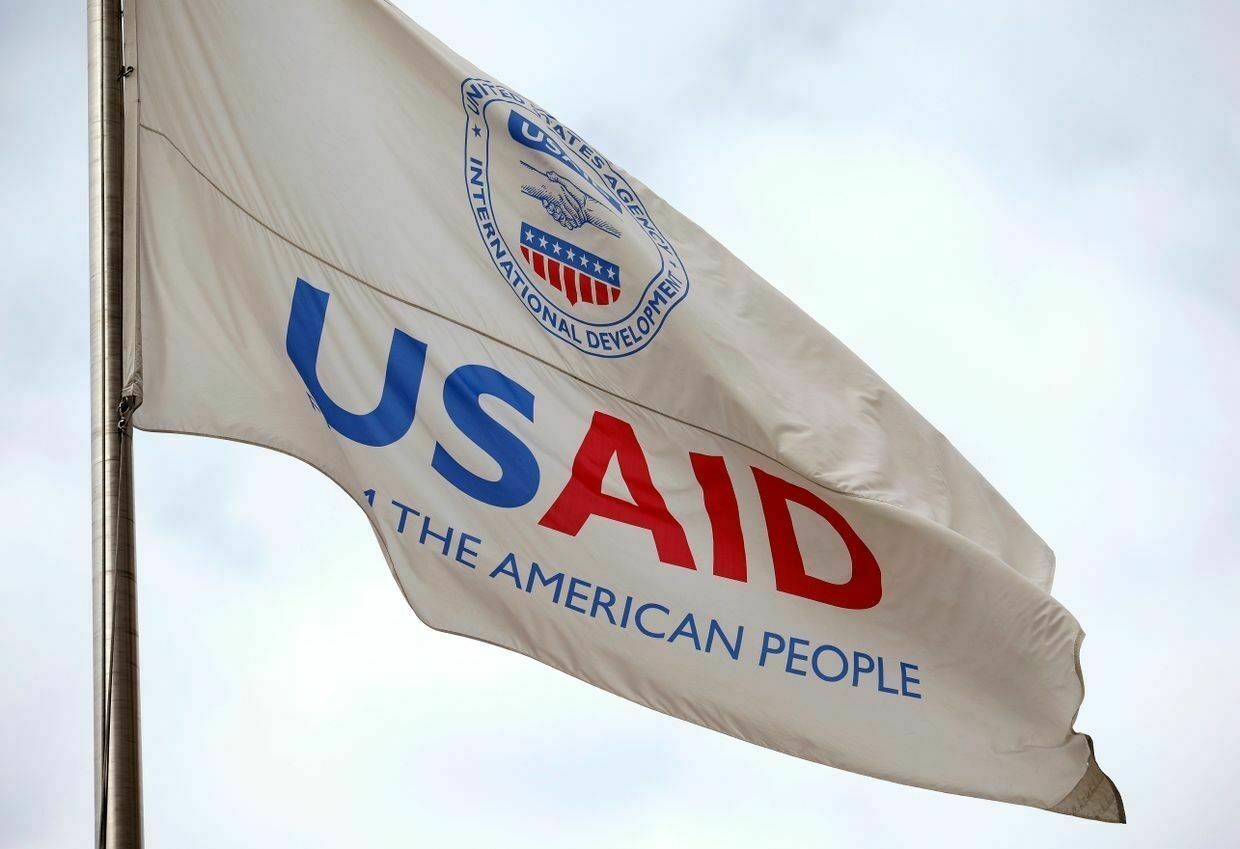
USAID officially stopped implementing foreign assistance as of July 1, as the Trump administration seeks to realign international aid with its policies, U.S. Secretary of State Marco Rubio announced.
“Foreign assistance programs that align with administration policies — and which advance American interests — will be administered by the State Department,” Rubio said in a statement on Substack.
The Trump administration has set its sights on the U.S.’s chief foreign aid agency, accusing it — despite little evidence — of fraud and of promoting a “liberal” or “leftist” agenda. Roughly 83% of USAID’s programs, or around 5,200 contracts, were terminated in March, and thousands of workers were laid off.
Founded in 1961, USAID has played a crucial role in humanitarian relief worldwide and has overseen thousands of programs supporting democracy-building, human rights, and economic development.
“USAID had decades and a near-infinite taxpayer budget to advance American influence, promote economic development worldwide, and allow billions to stand on their own two feet,” Rubio said.
“Beyond creating a globe-spanning NGO industrial complex at taxpayer expense, USAID has little to show since the end of the Cold War."
Contradicting Rubio’s comments, experts and former U.S. officials have criticized the decision and pointed to potentially devastating humanitarian consequences. Research by The Lancet estimated that USAID funding cuts could result in 14 million deaths by 2030, including 4.5 million children younger than 5.
“We will not apologize for recognizing America’s longstanding commitment to life-saving humanitarian aid and promotion of economic development abroad must be in furtherance of an America First foreign policy,” Rubio said.
The chief U.S. diplomat presented the step as part of President Donald Trump’s broader policies aimed at requiring international allies and partners to pay a greater share for projects around the world.
“Americans should not pay taxes to fund failed governments in faraway lands. Moving forward, our assistance will be targeted and time limited. We will favor those nations that have demonstrated both the ability and willingness to help themselves,” Rubio said.
Since the start of Russia’s full-scale invasion, USAID has provided $2.6 billion in humanitarian aid to Ukraine, as well as $5 billion in development assistance and more than $30 billion in direct budget support to Kyiv.
Want to invest in Ukrainian startups from the US? This platform promises to be the bridgeHans Braunfisch wants Americans to invest in Ukrainian startups, but there’s a problem: there’s no clear path for individual investors to put money into the more than 26,000 Ukrainian startups out there. The former PwC consultant plans to change that with Pravo Venture, a platform streamlining foreign investment forThe Kyiv IndependentDominic Culverwell
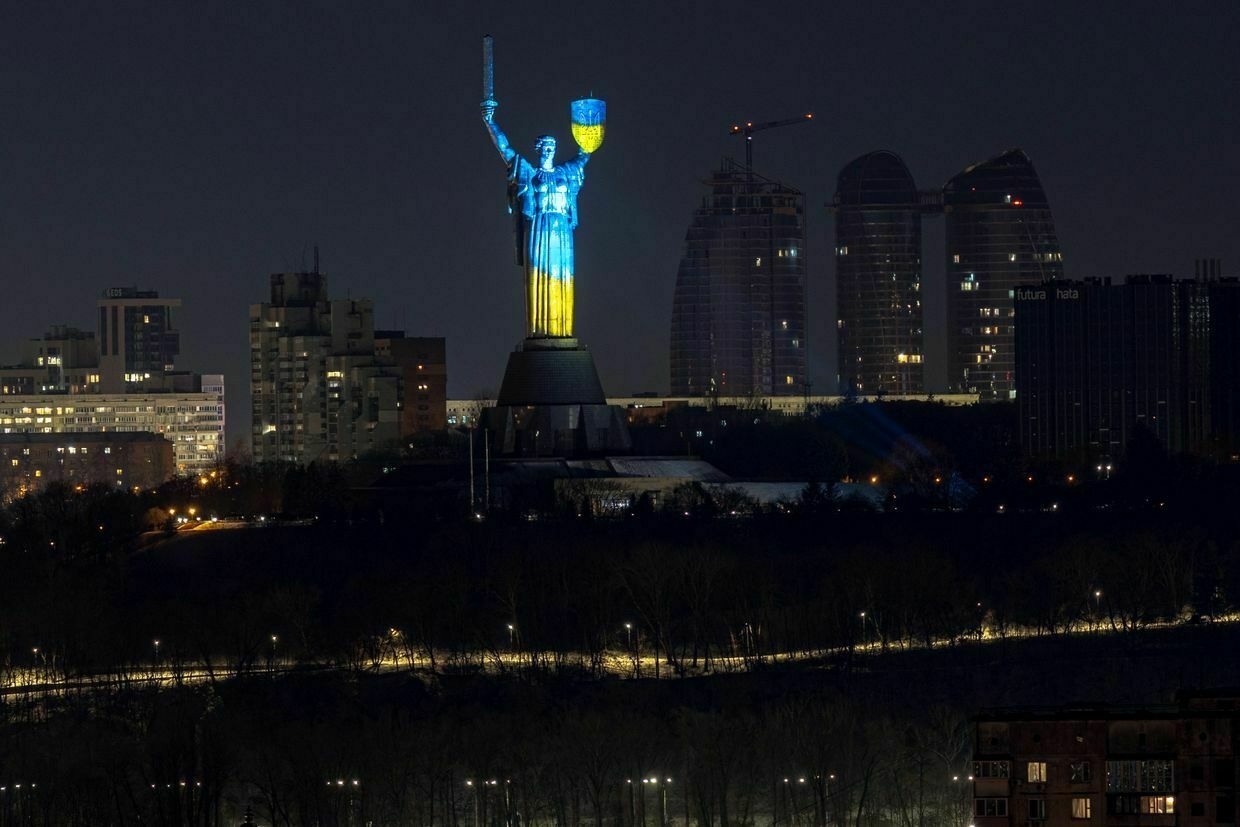
-
Russia cannot launch 500 drones every day, Ukraine's intel chief says
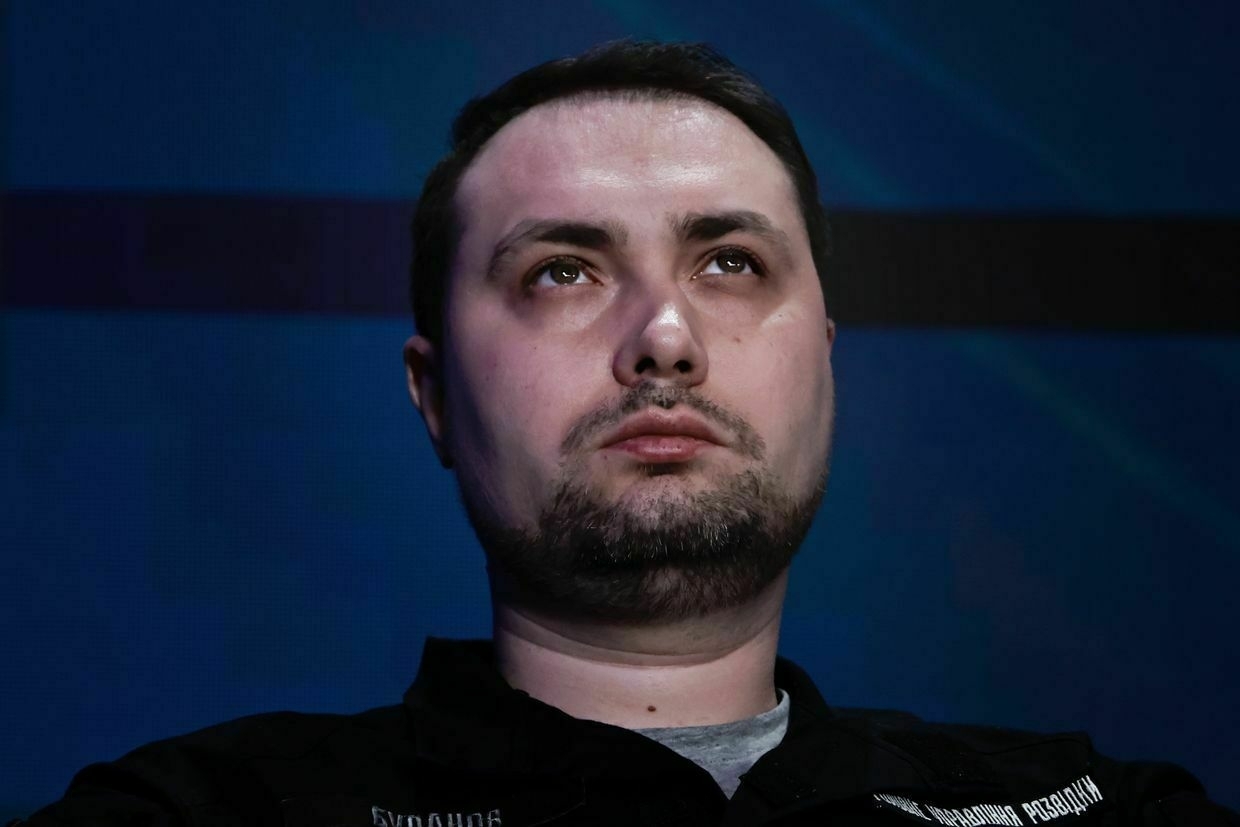
Russia has the capacity to launch as many as 500 Iranian-designed Shahed attack drones at Ukraine in a single attack, but doing so on a daily basis is not possible, Ukraine’s military intelligence chief Kyrylo Budanov said on July 2, according to Suspilne.
In recent weeks, Russia has intensified its drone assaults on Ukrainian cities, often launching hundreds in a single day. The largest aerial attack since the start of the full-scale invasion occurred overnight on June 29, when Moscow launched 477 drones and 60 missiles across Ukraine.
“Launching 450–500 Shaheds every day — it’s just not realistic,” said Budanov during a ceremony recognizing five Ukrainian intelligence achievements in the national record book, according to public broadcaster Suspilne.
“But unfortunately, they do have the ability to do it periodically. They can realistically launch up to 500 in one strike,” Budanov added.
Budanov also said Russia is upgrading the capabilities of the Shahed-type drones by improving their CRPA (Controlled Reception Pattern Antenna) systems, which protect the drones from GPS jamming. He noted that Russian engineers are now producing 16-channel CRPA antennas, which are harder to counter electronically.
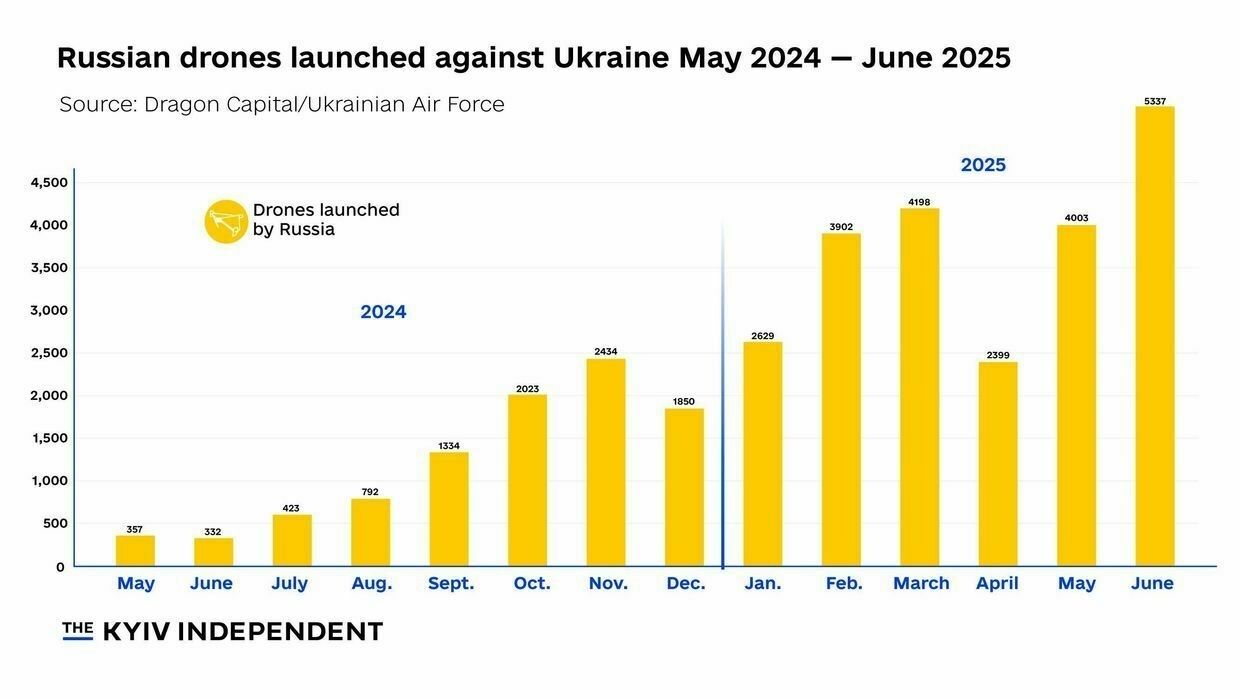
Russian drones launched against Ukraine by month (Nizar al-Rifai/The Kyiv Independent) “These antennas are currently produced in Russia, but the engineer who developed this CRPA antenna was here in Ukraine,” Budanov said.
“Back in the early 2000s, no one here needed it, so the engineer moved to Russia. One (of the two engineers involved in the development) has already died under unclear circumstances. The other is still alive, though probably not for long."
Russia has used thousands of Shahed-type drones throughout its full-scale invasion to strike Ukrainian cities and infrastructure, often in large overnight waves. Ukrainian air defenses have adapted over time but face growing challenges as Moscow improves drone resilience and electronic warfare capabilities.
President Volodymyr Zelensky said that Moscow has launched 28,743 Shahed-type drones at Ukraine since the start of Russia’s full-scale invasion.
Budanov also said Russia has made unsuccessful attempts to develop its own naval drones. The last known effort came in early June, when experimental models detonated before reaching Ukrainian territorial waters, he said.
“They didn’t achieve results. Based on our information, they were heading toward the city of Yuzhne, searching for targets,” he said.
Ukraine has been using domestically developed Magura naval drones to target Russian military assets in the Black Sea, keeping much of Russia’s fleet pinned in port.
Despite their small size, the unmanned surface vessels have proven effective, including in a May 2 operation when Ukraine’s military intelligence used Magura-7 drones armed with air-to-air missiles to shoot down two Russian Su-30 fighter jets near Novorossiysk. It was the first recorded instance of fighter jets being downed by naval drones.
Ukraine shows its latest ‘ship-killer’ Magura drone series to the public for the first timeThe Magura drones, as well as the Sea Baby drones of the Security Service of Ukraine (SBU), were pivotal in turning the tide of the war in the Black Sea, destroying or damaging Russian ships and other assets.The Kyiv IndependentMartin Fornusek
